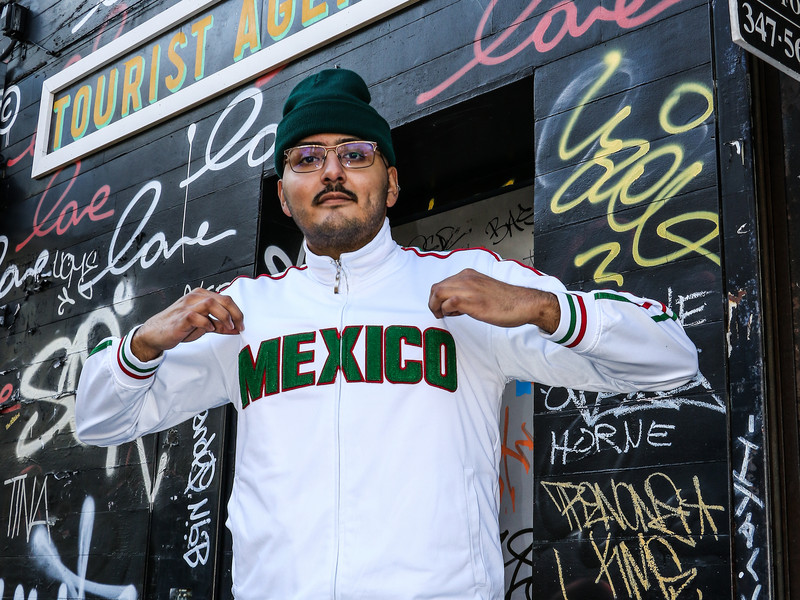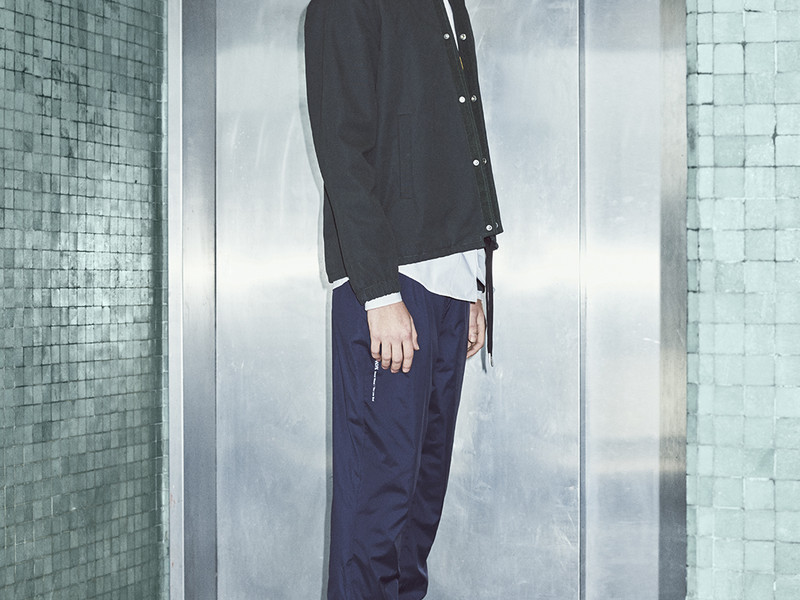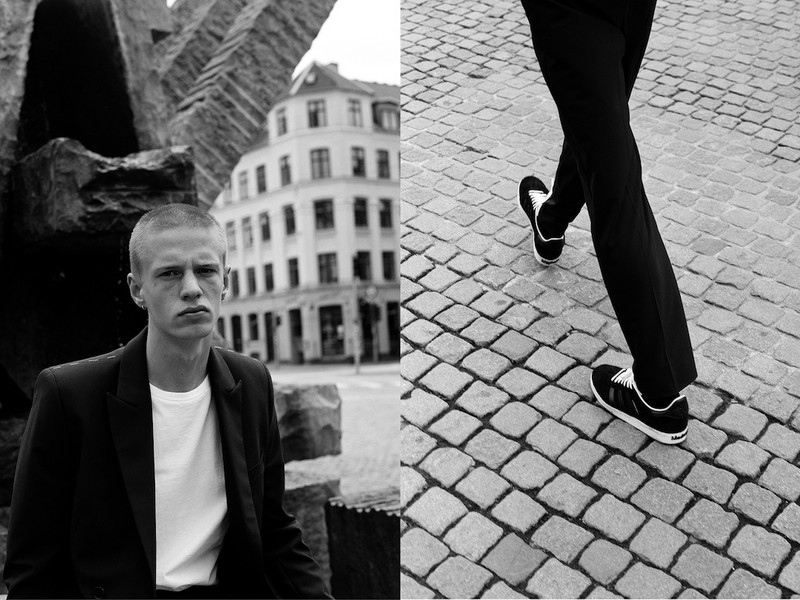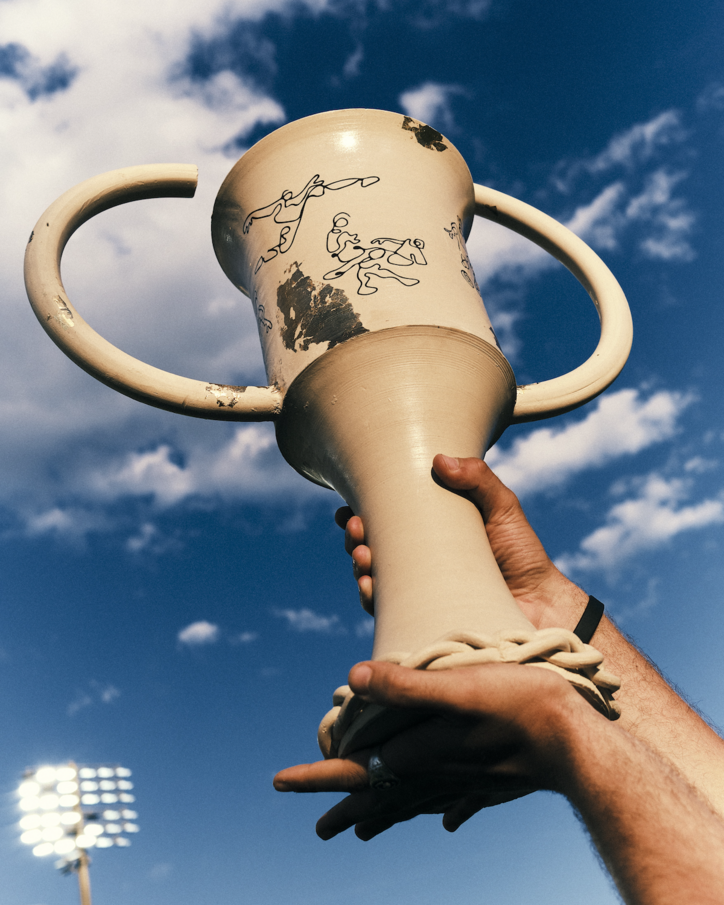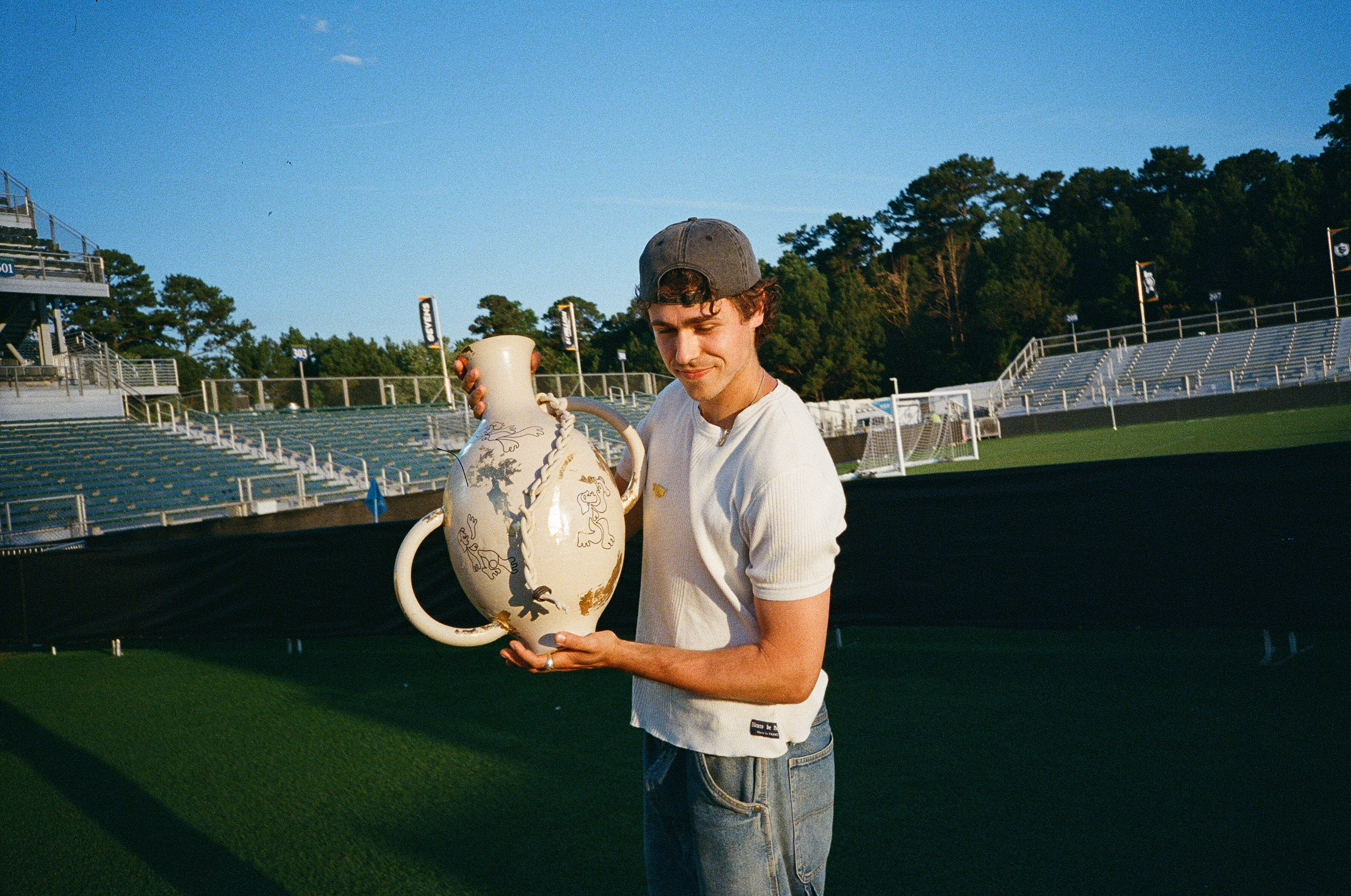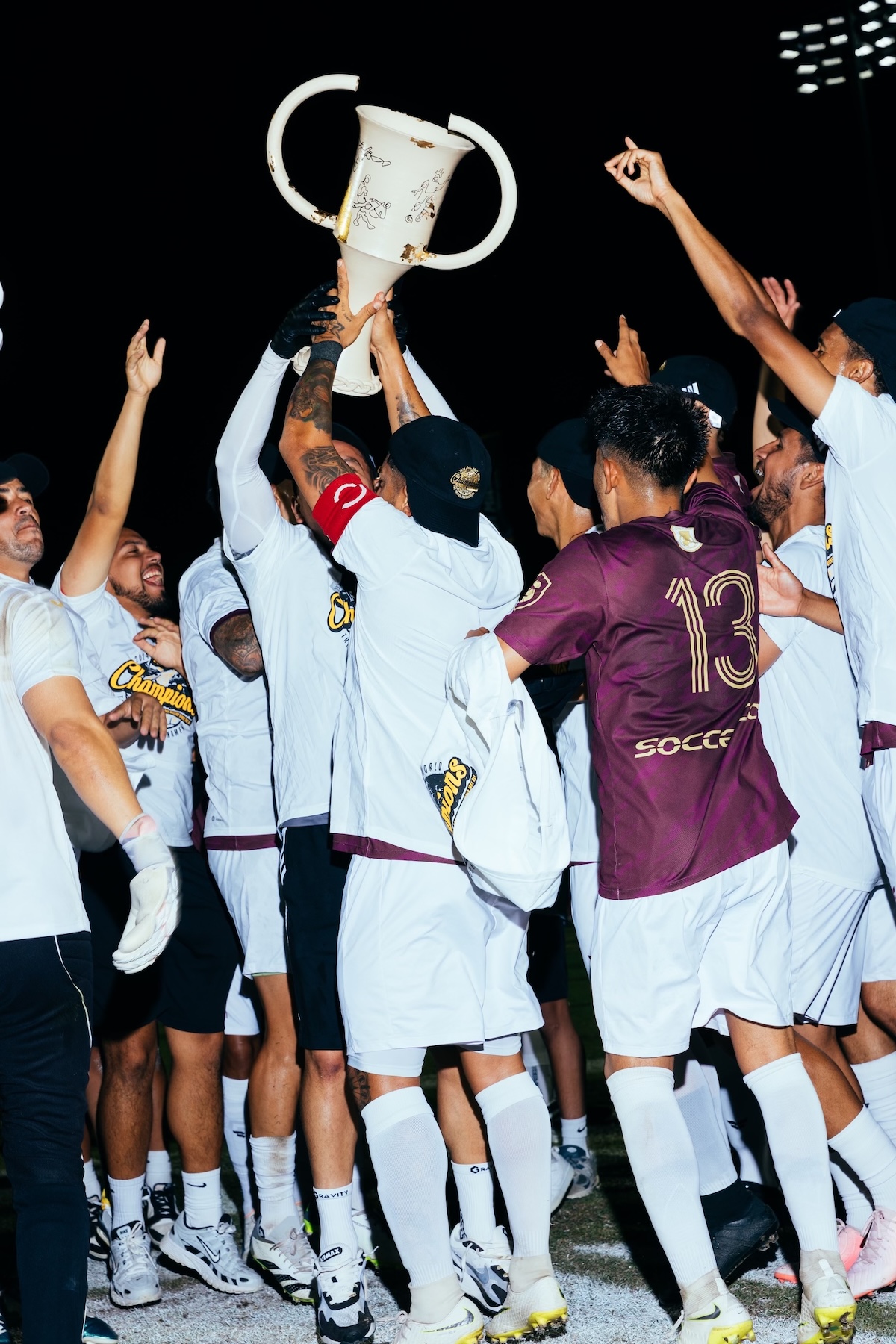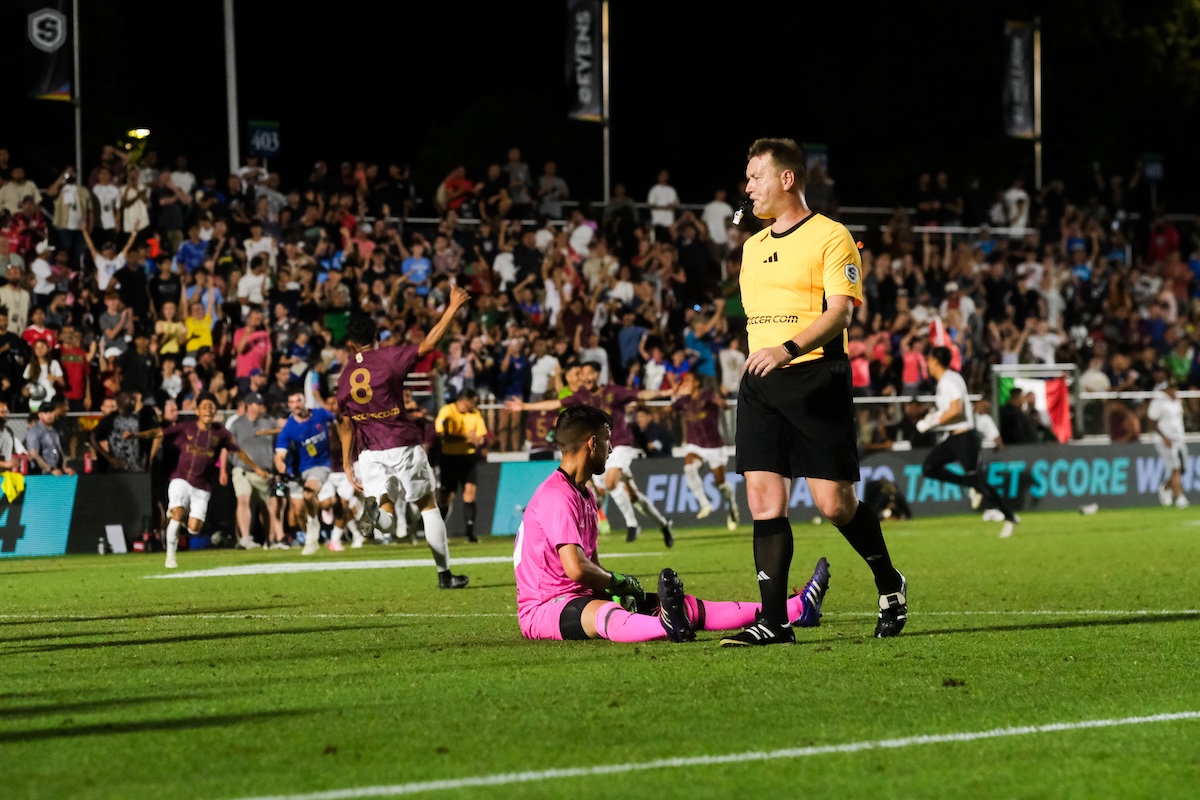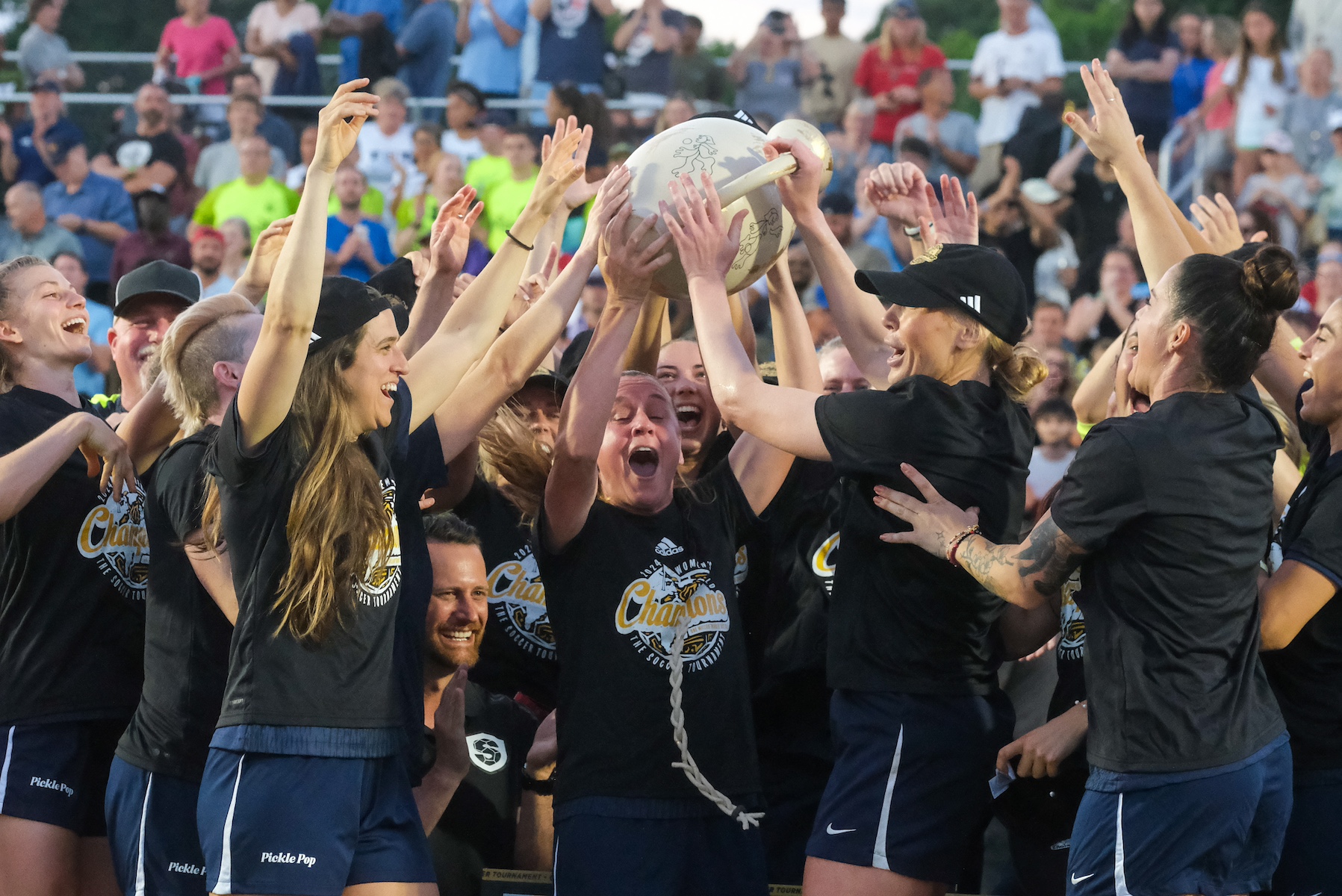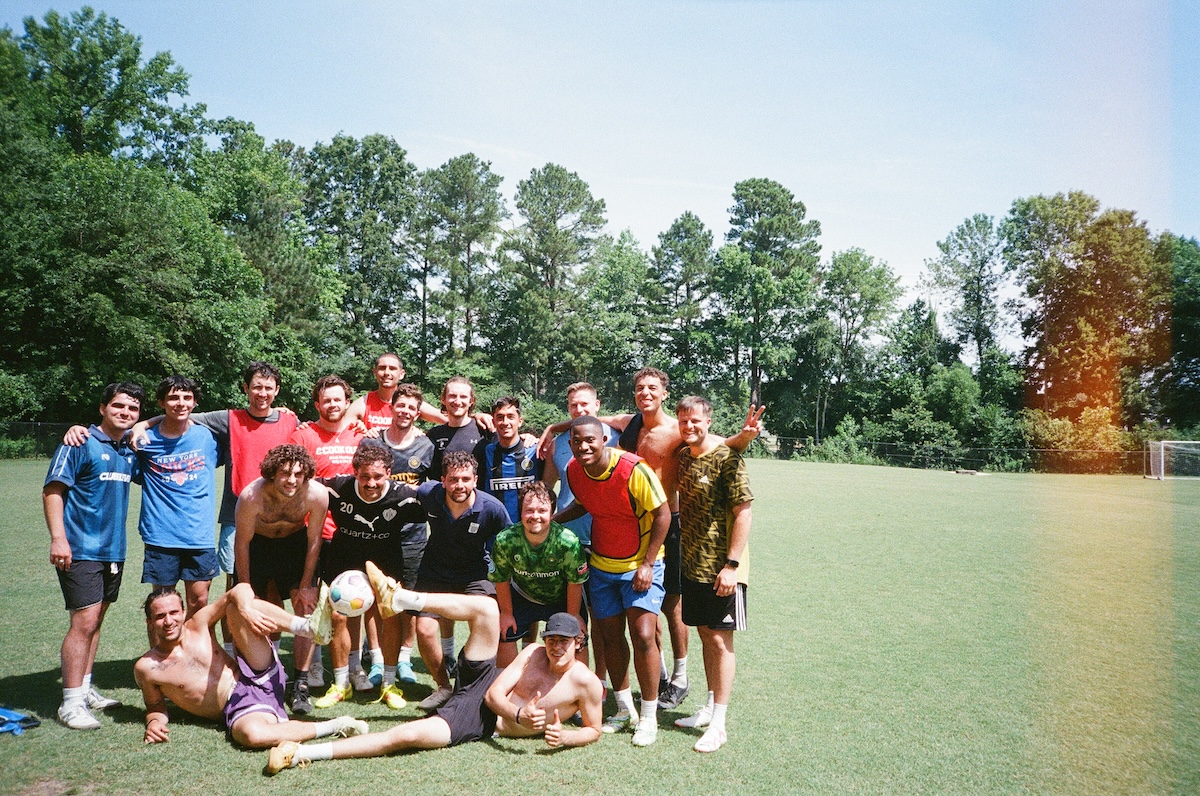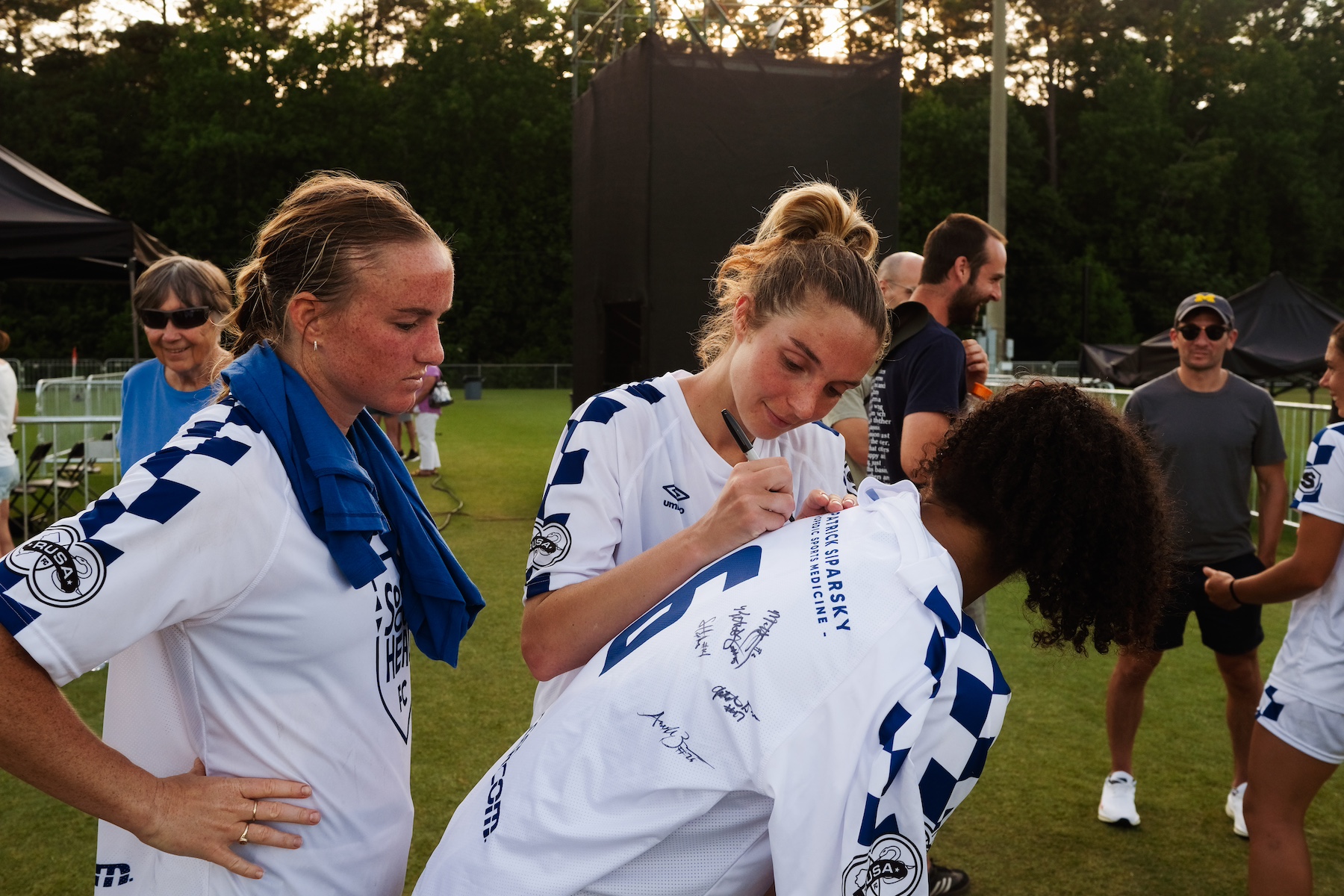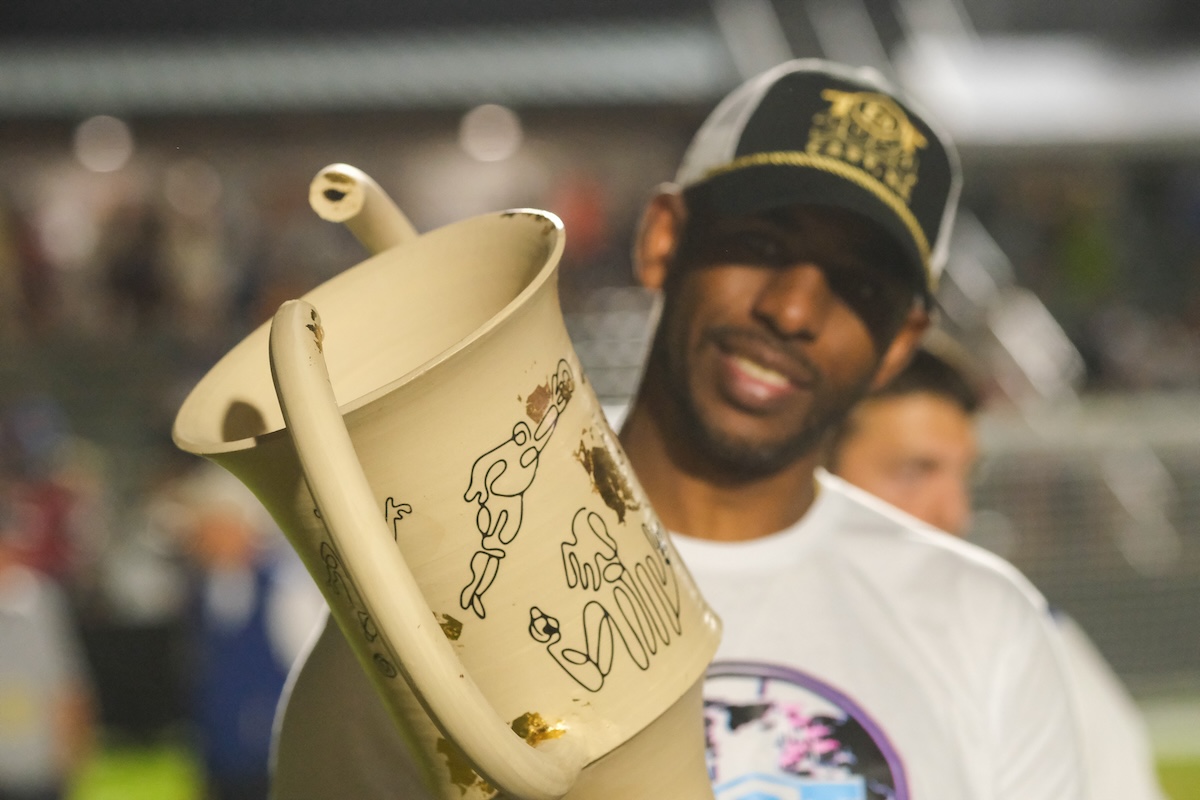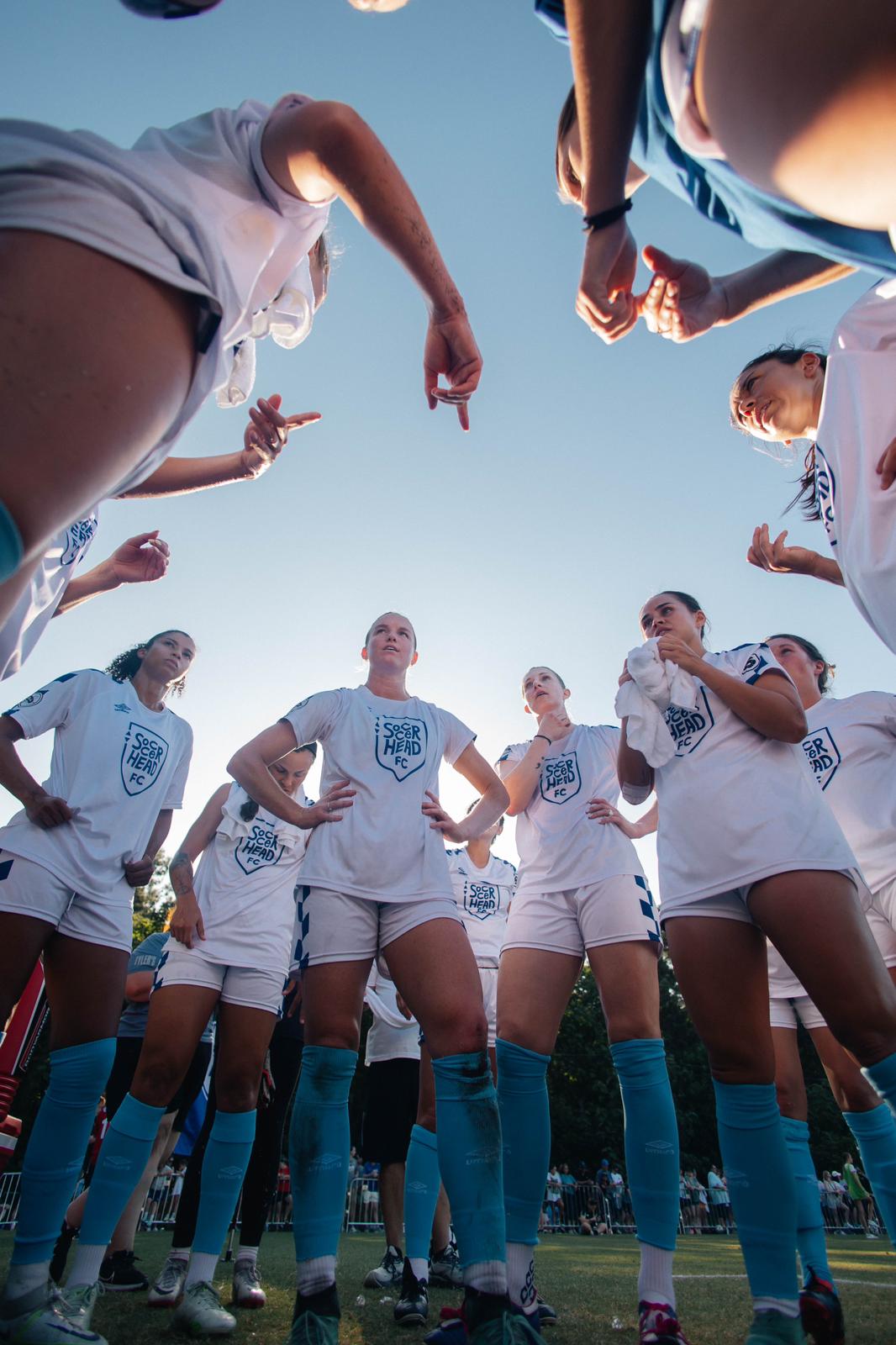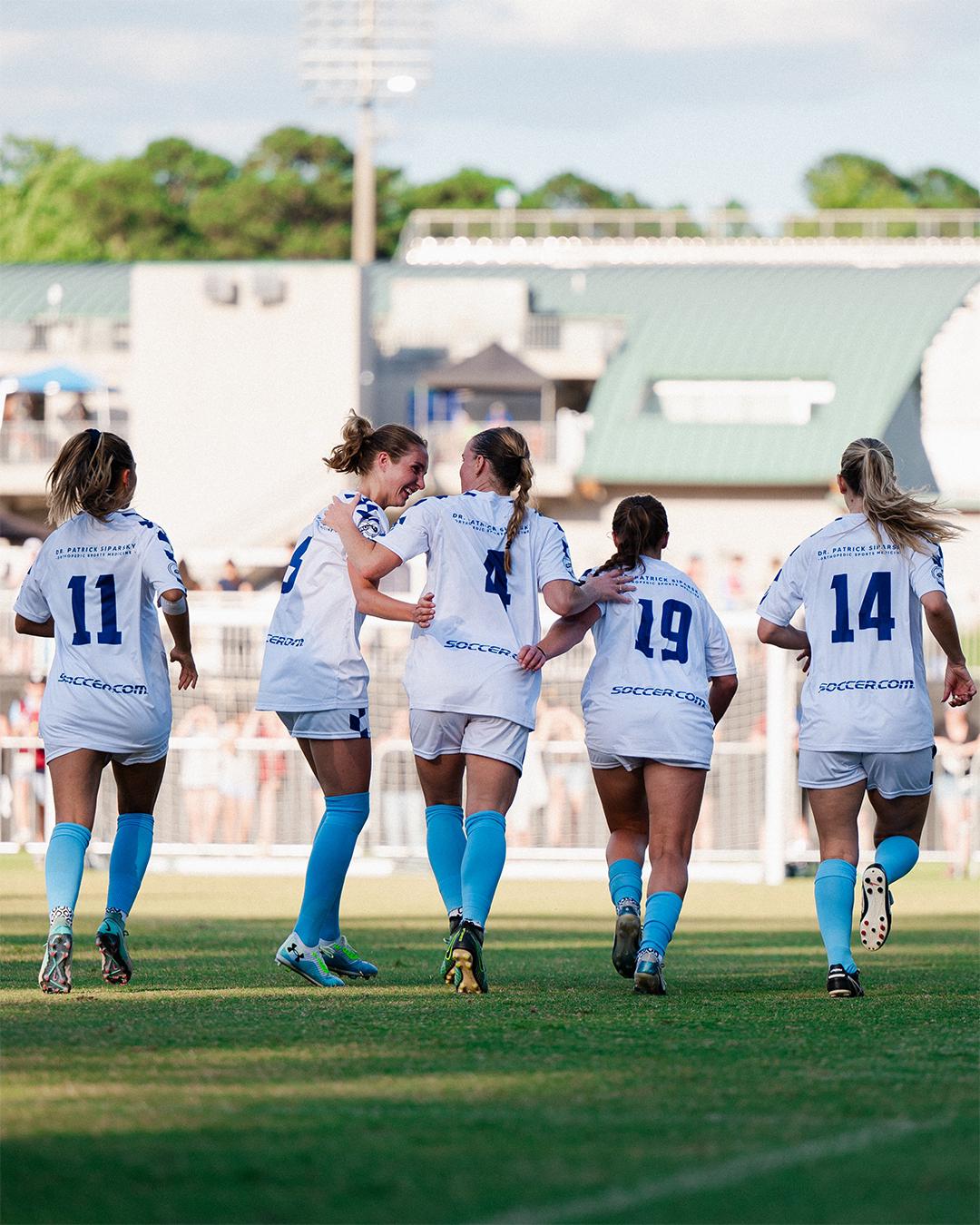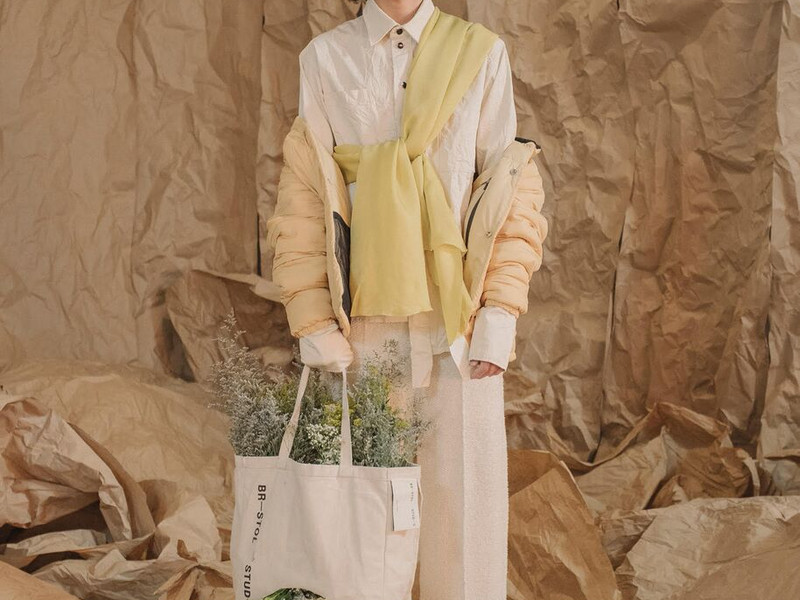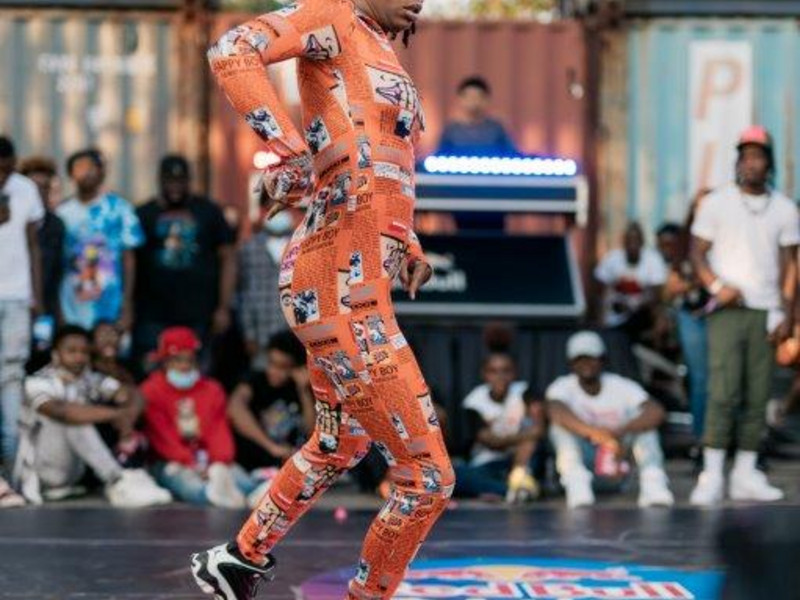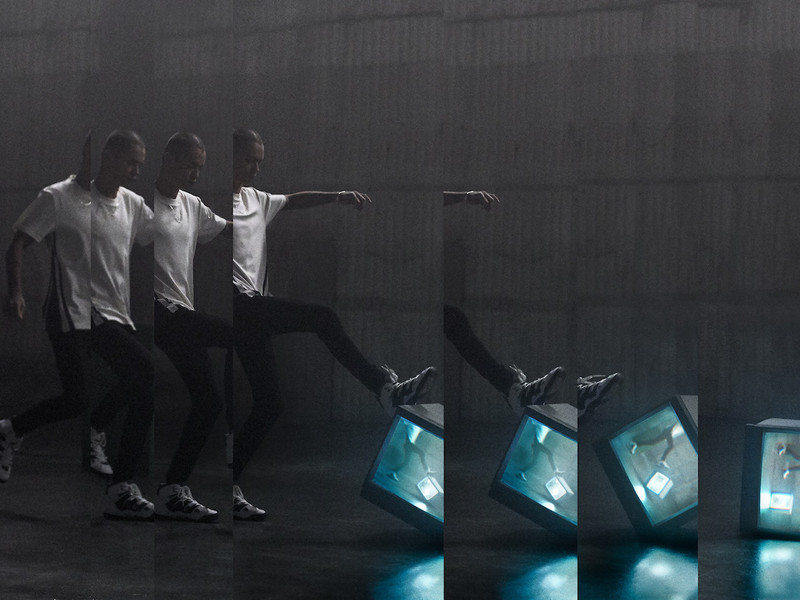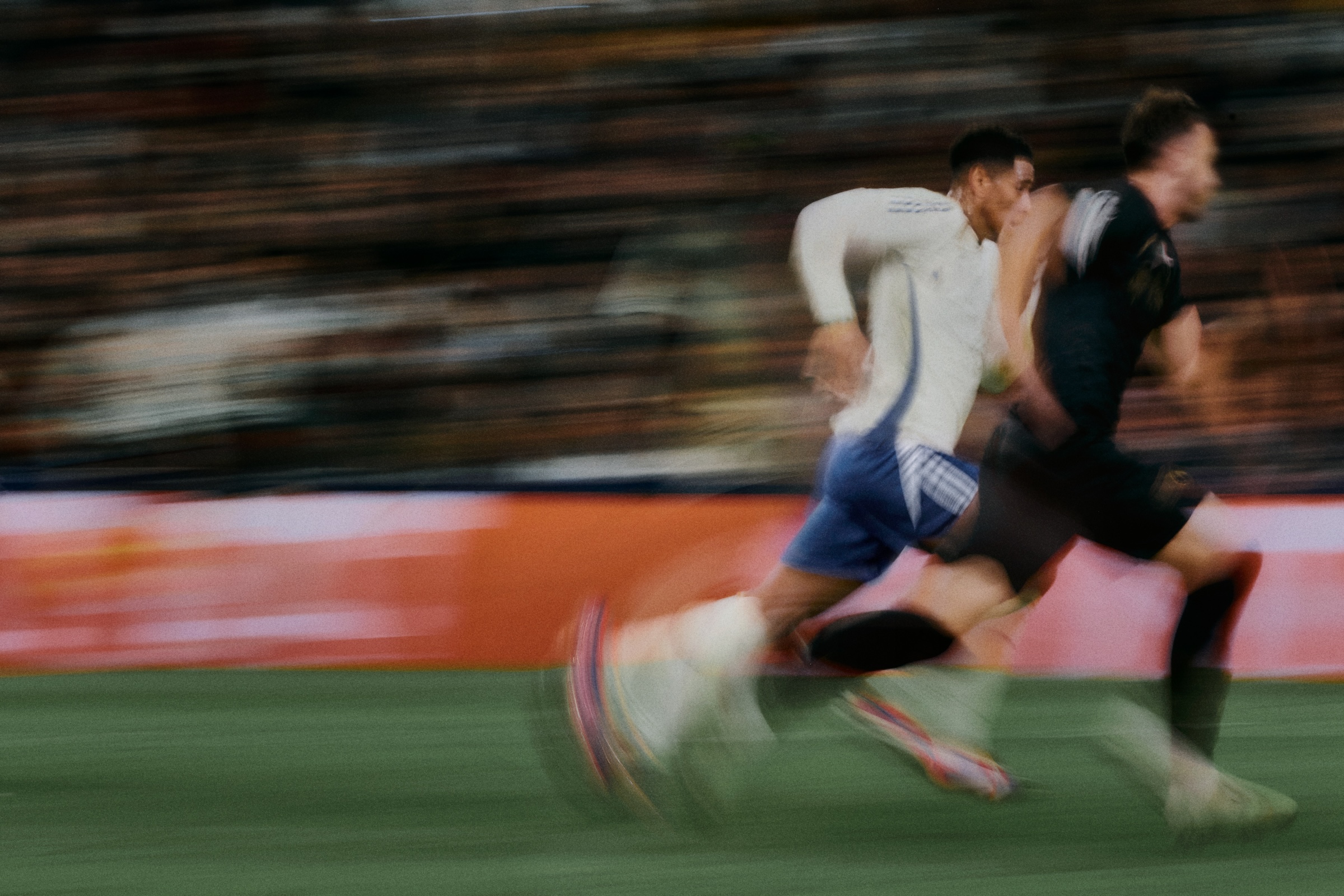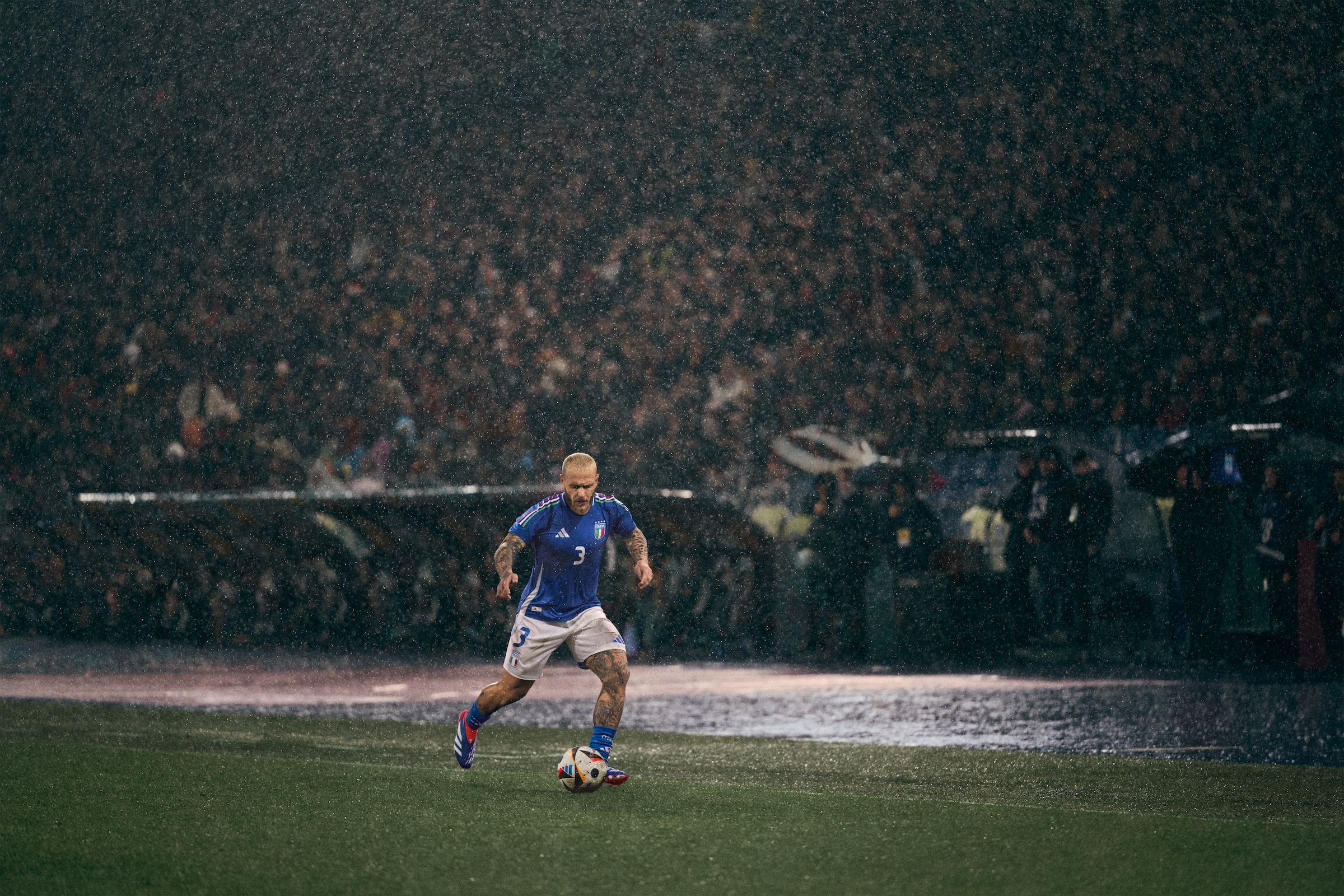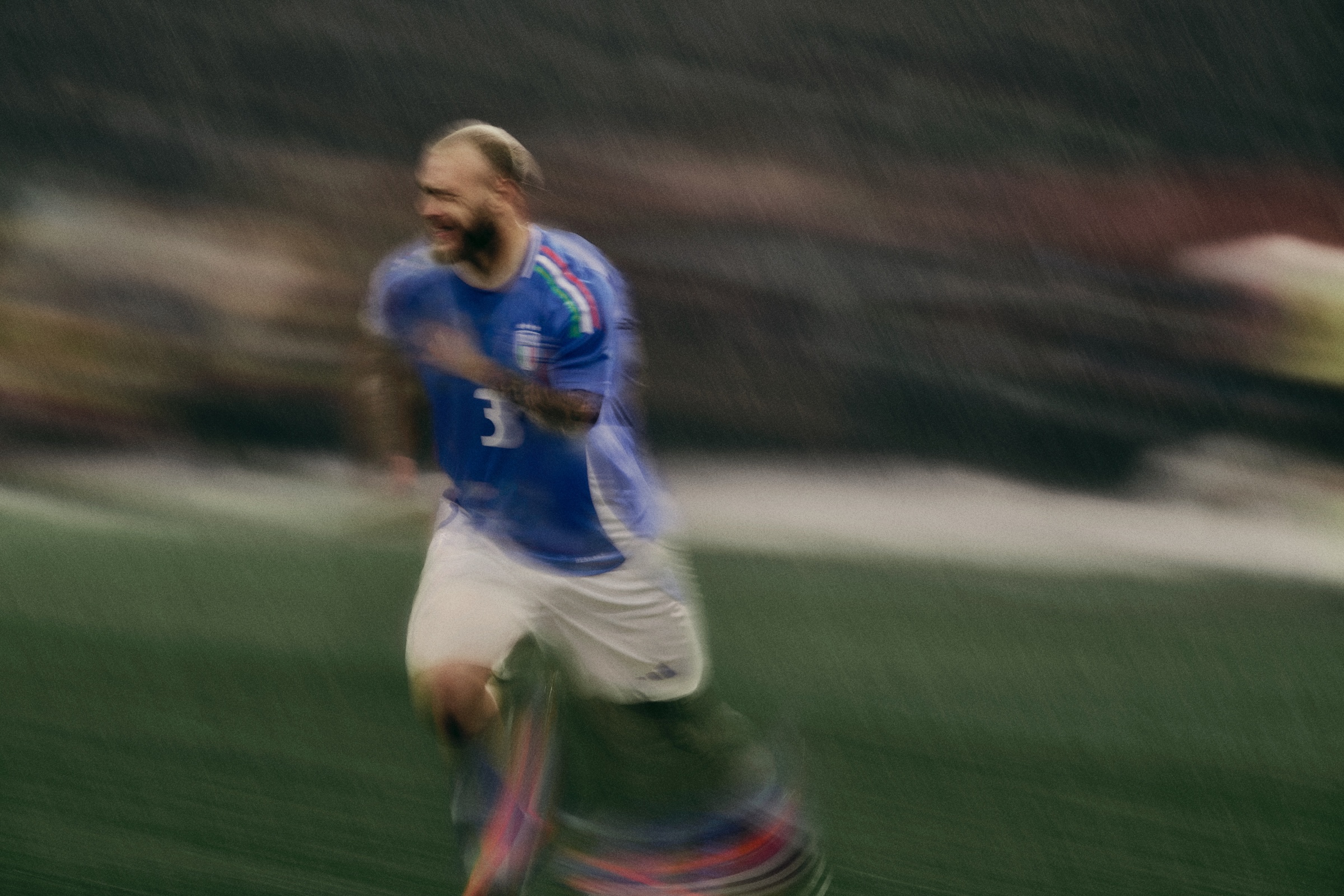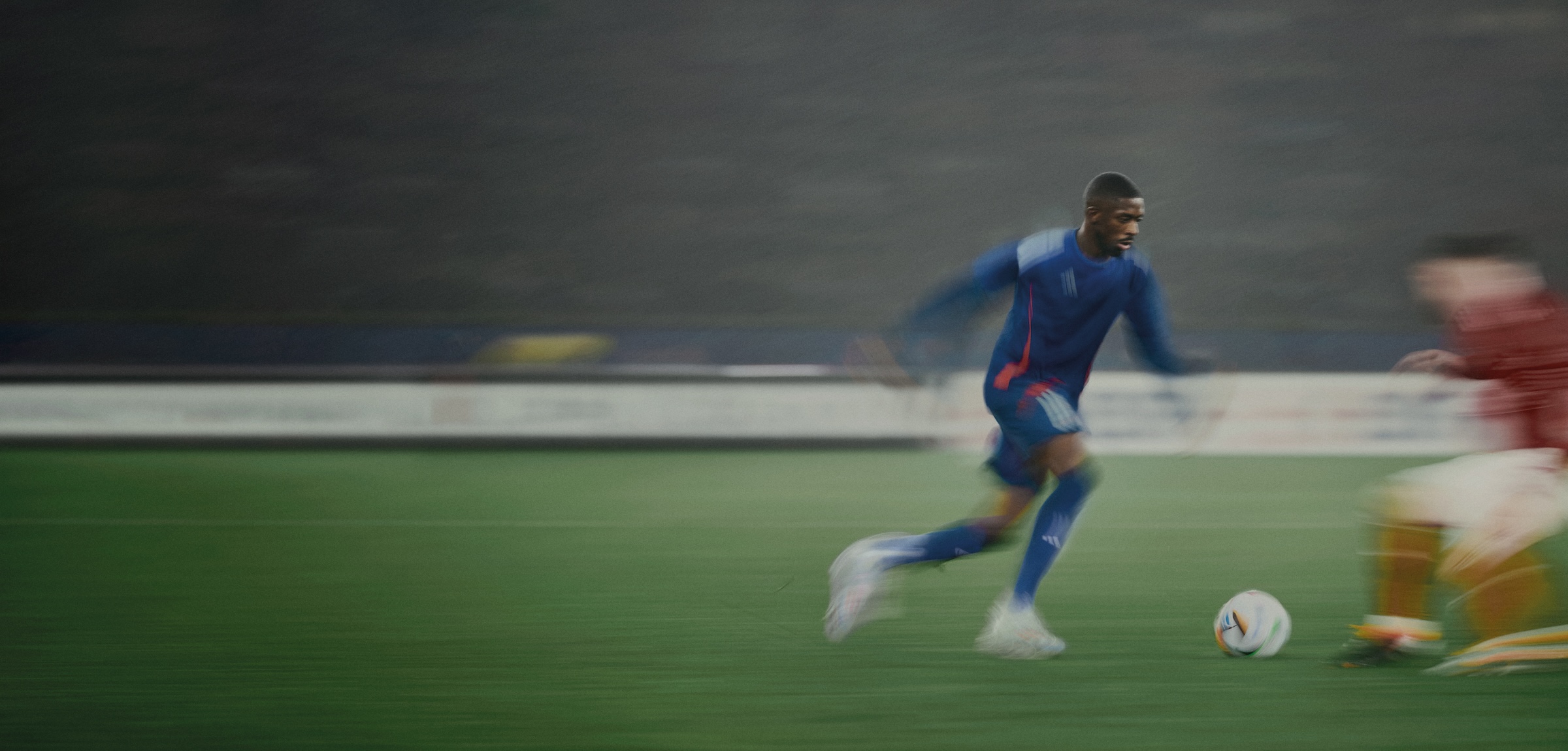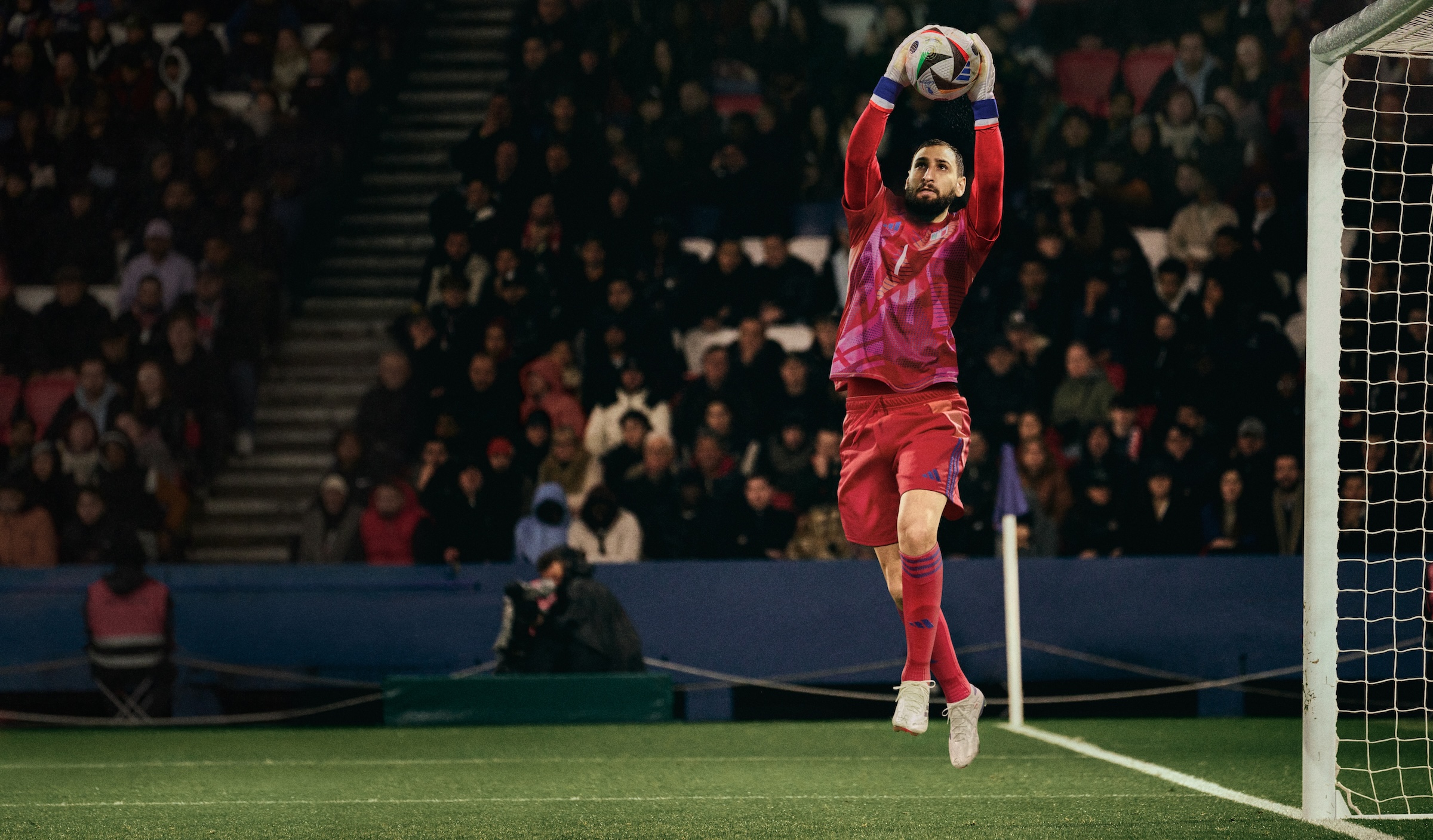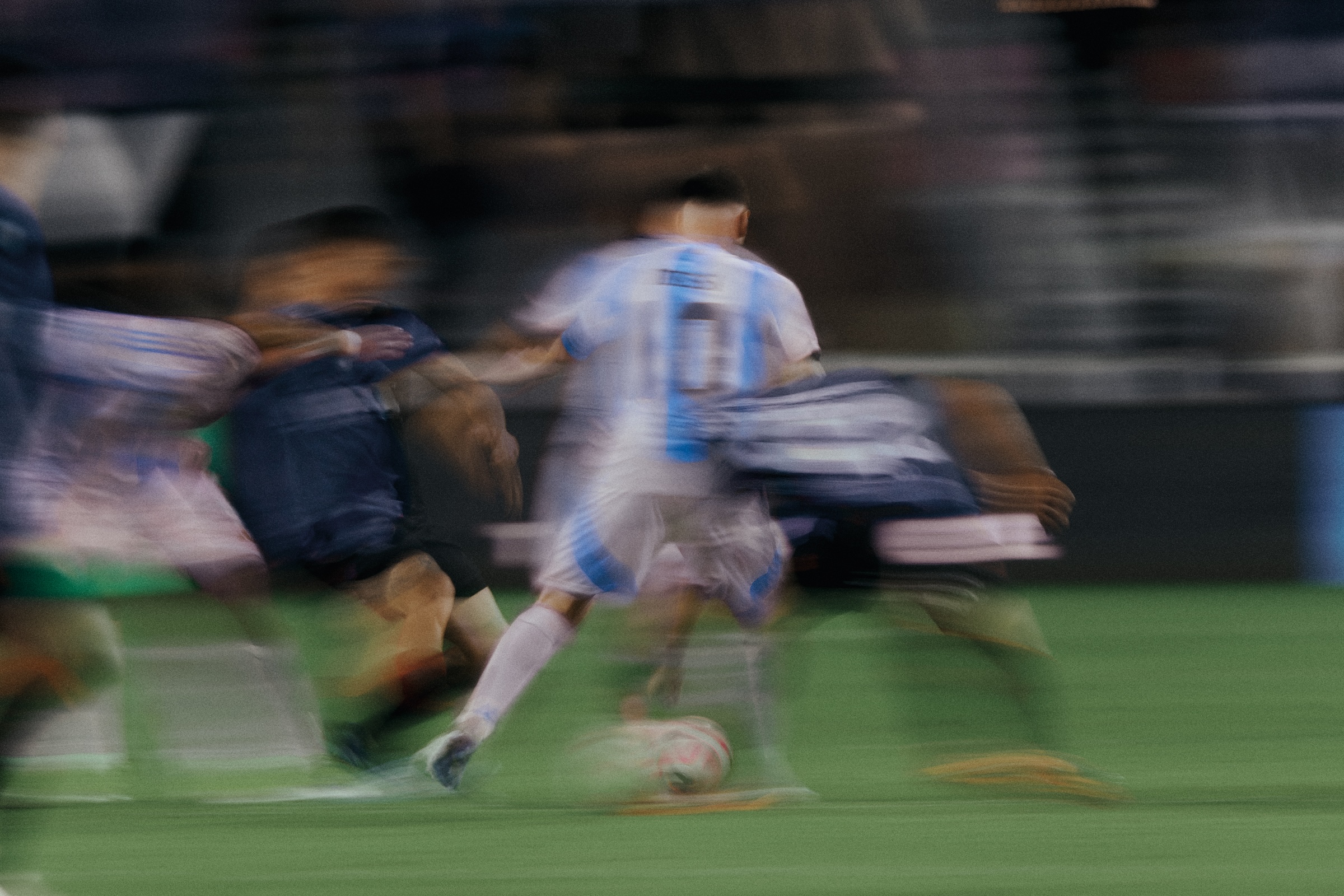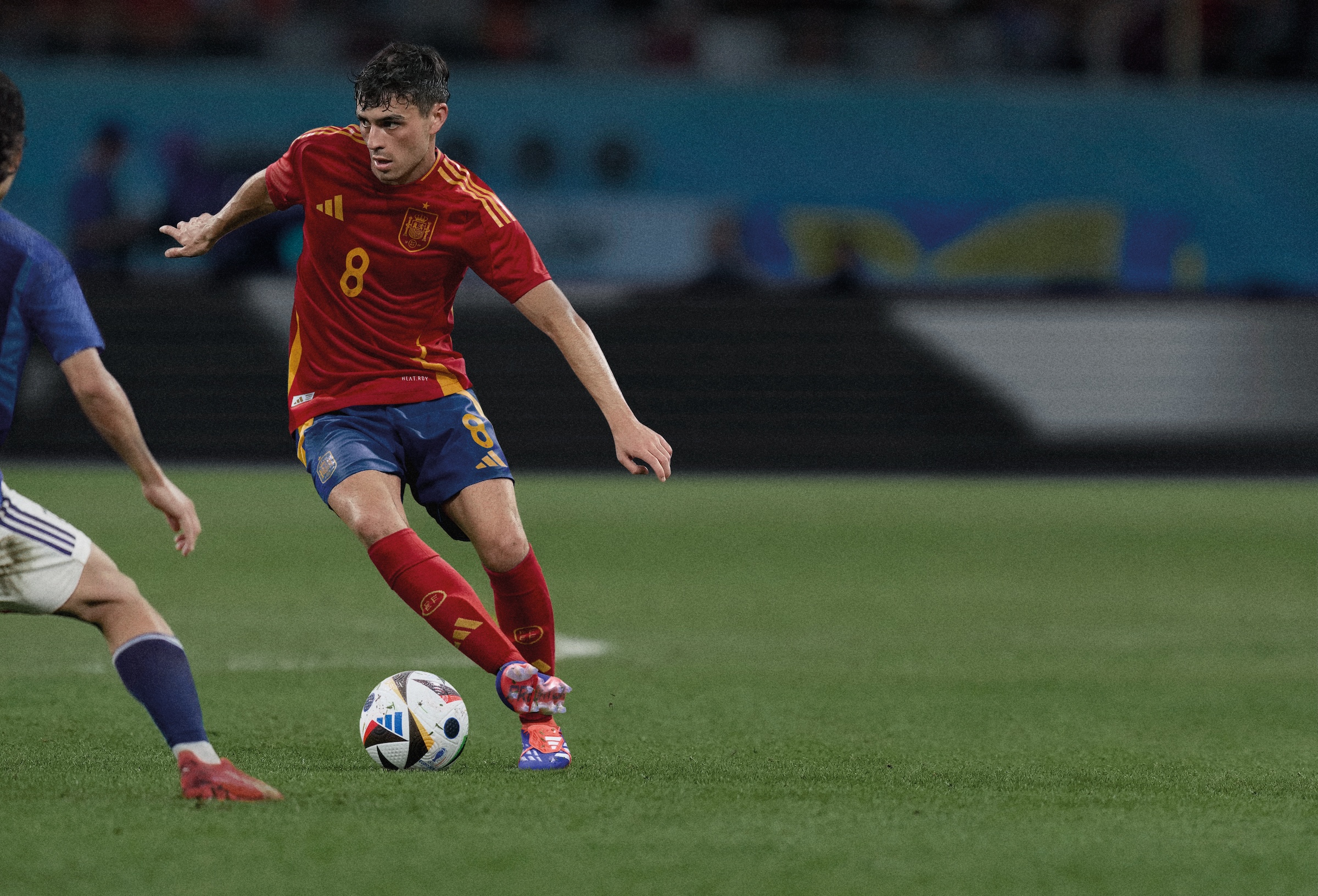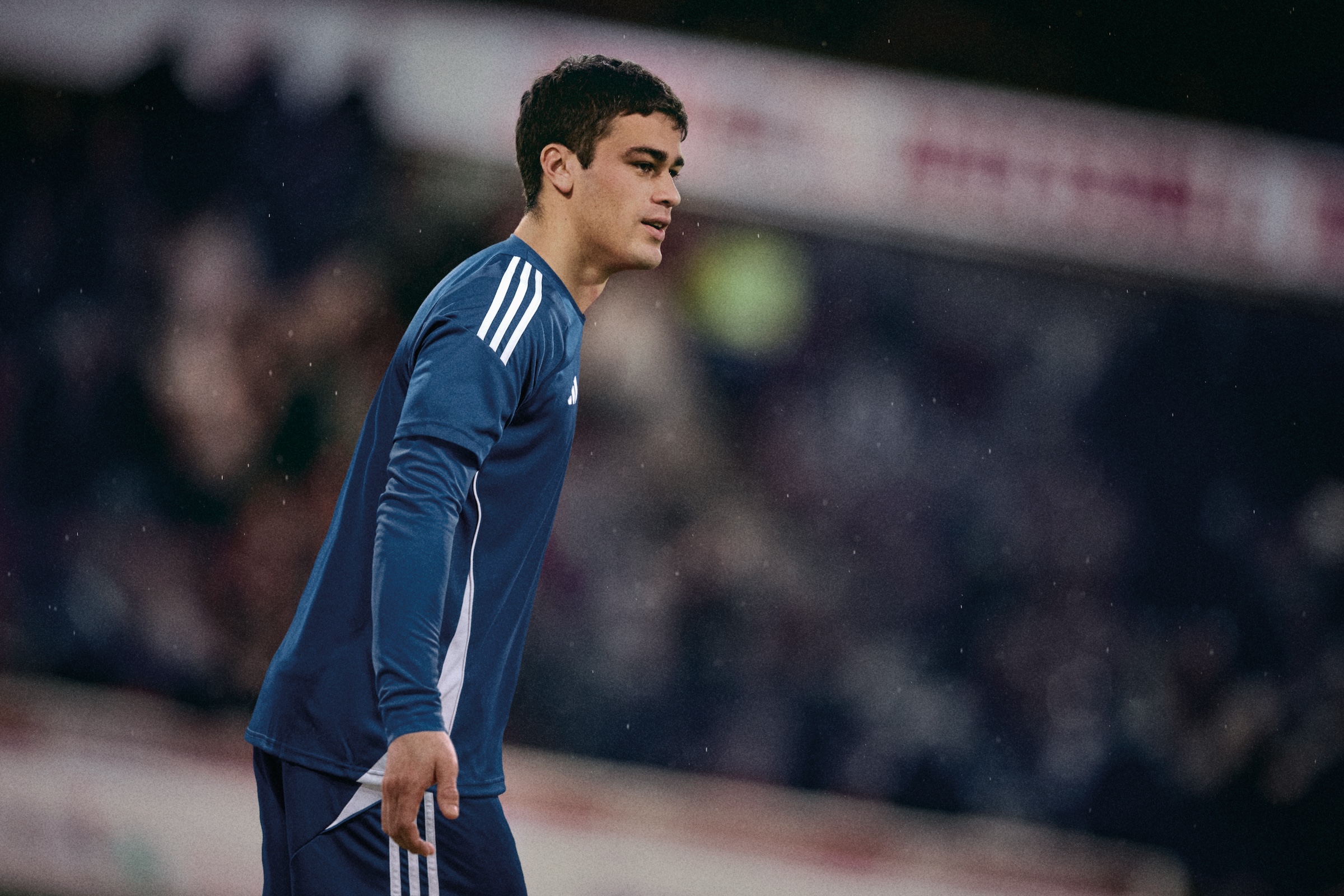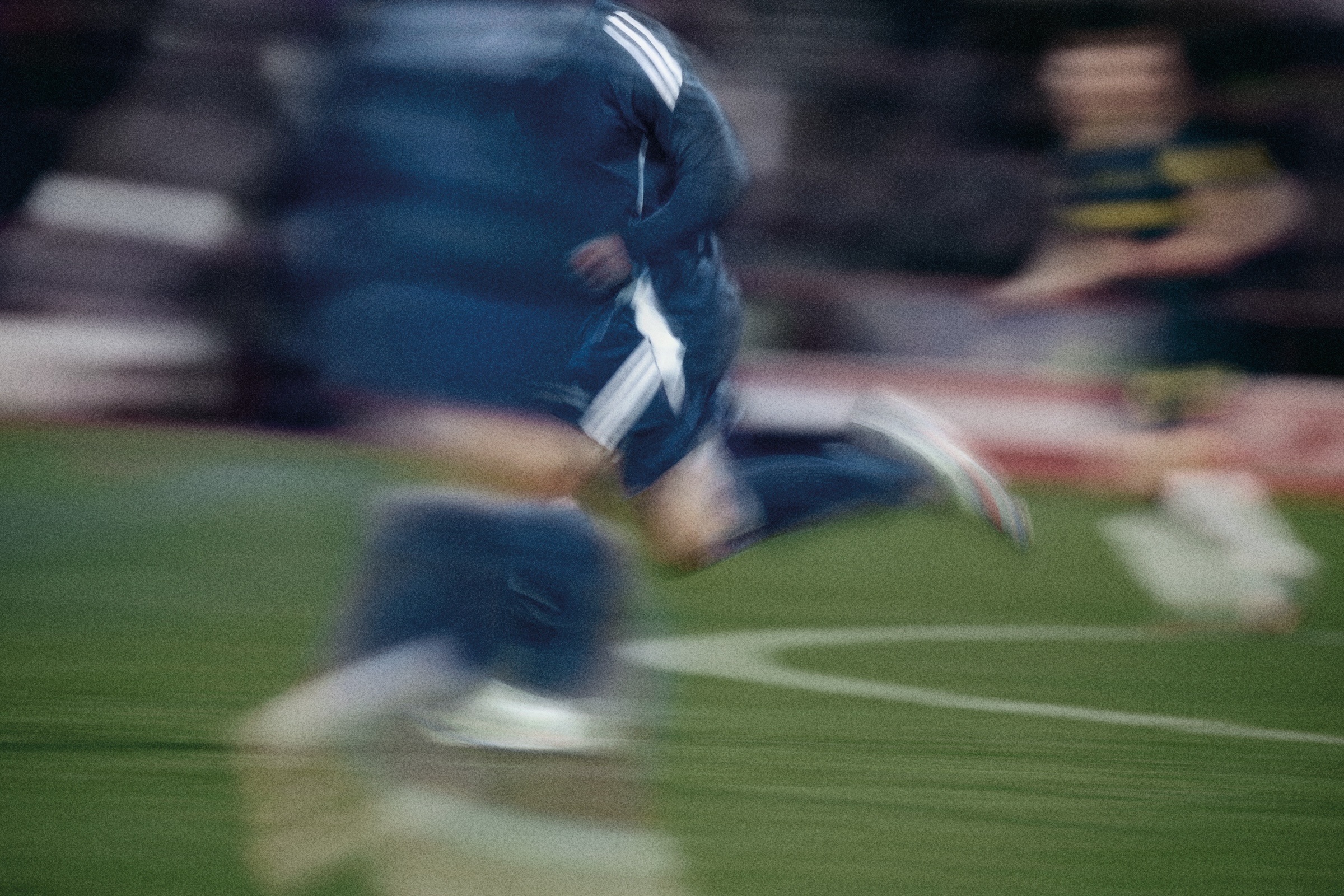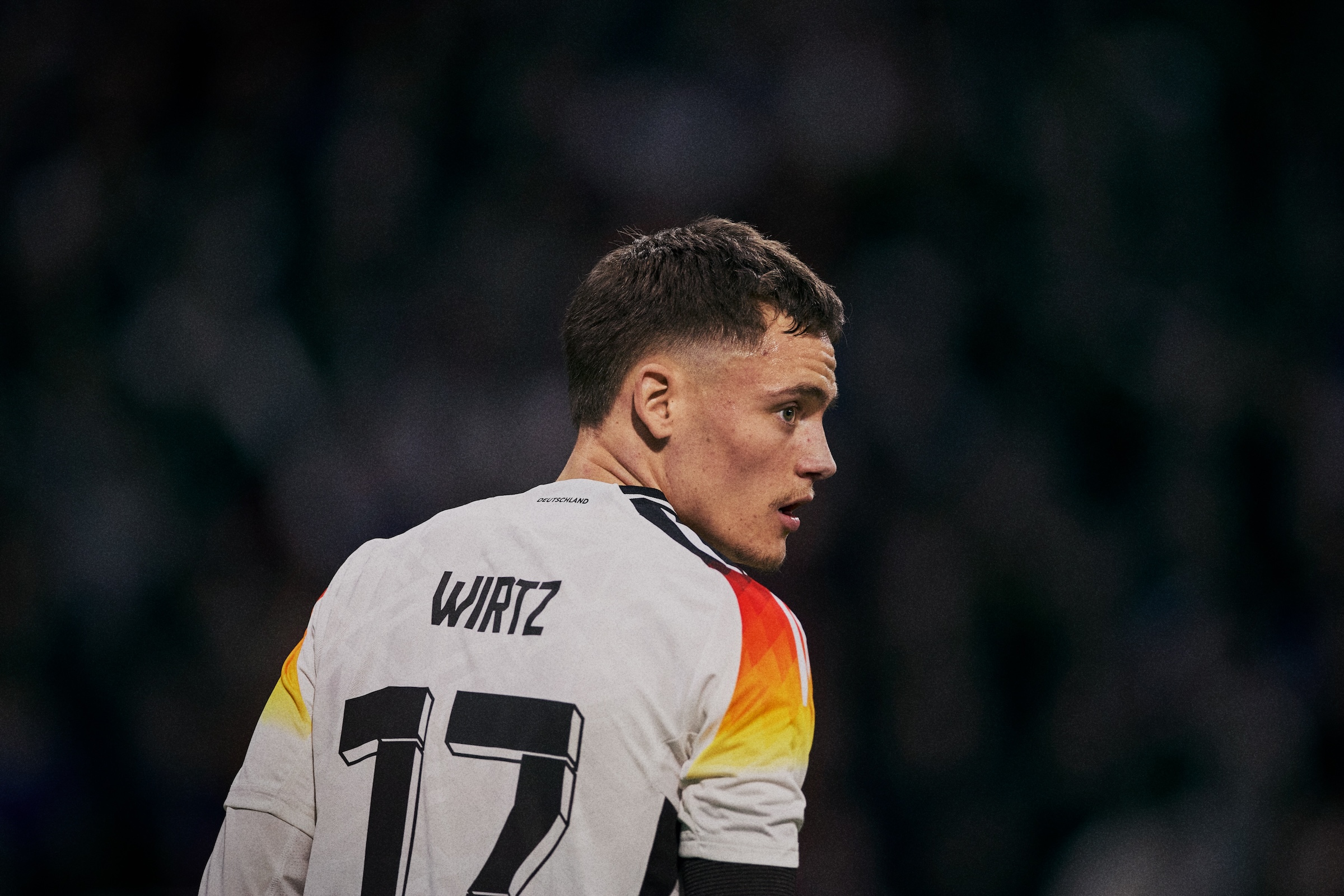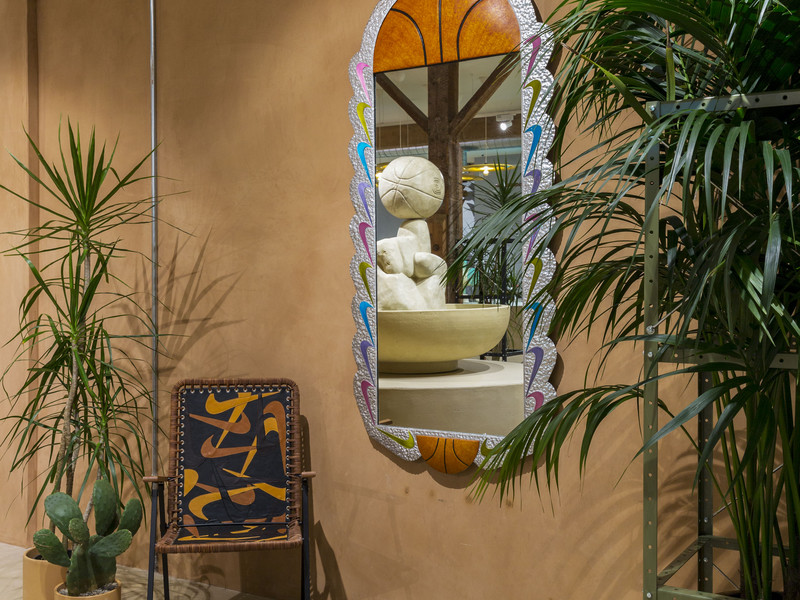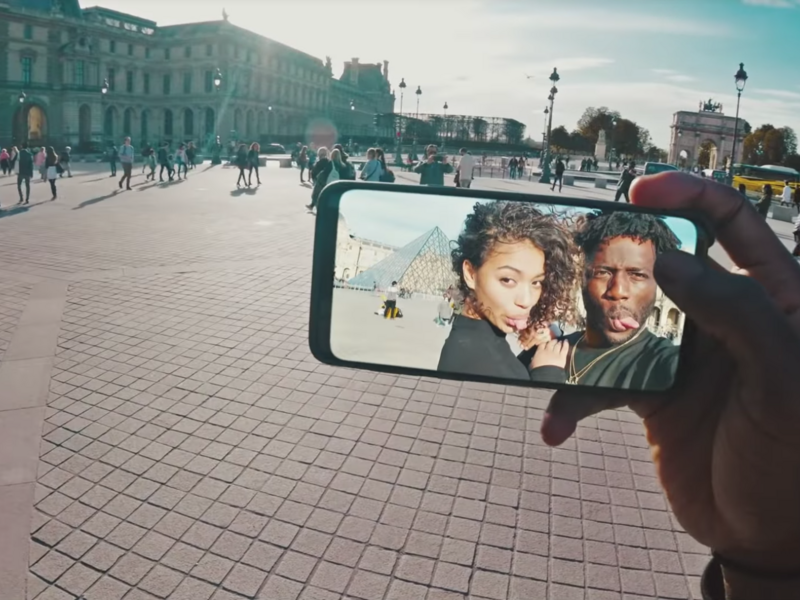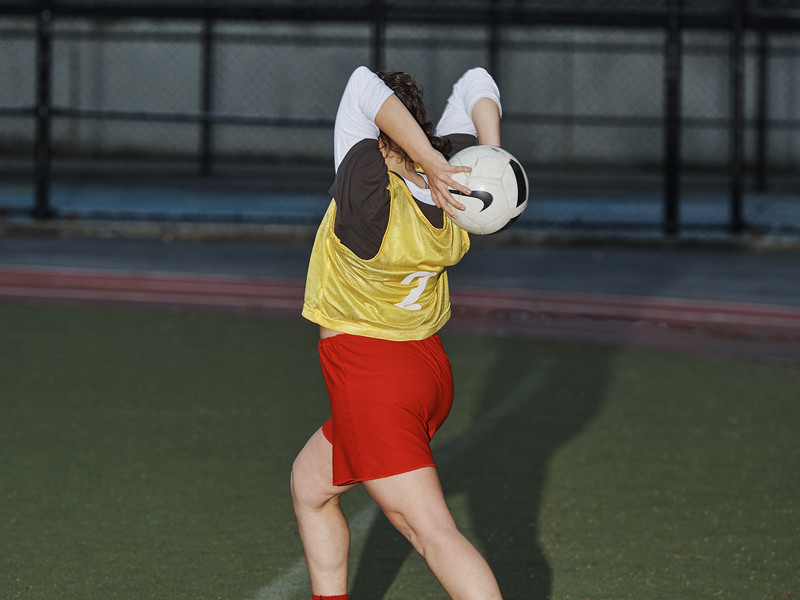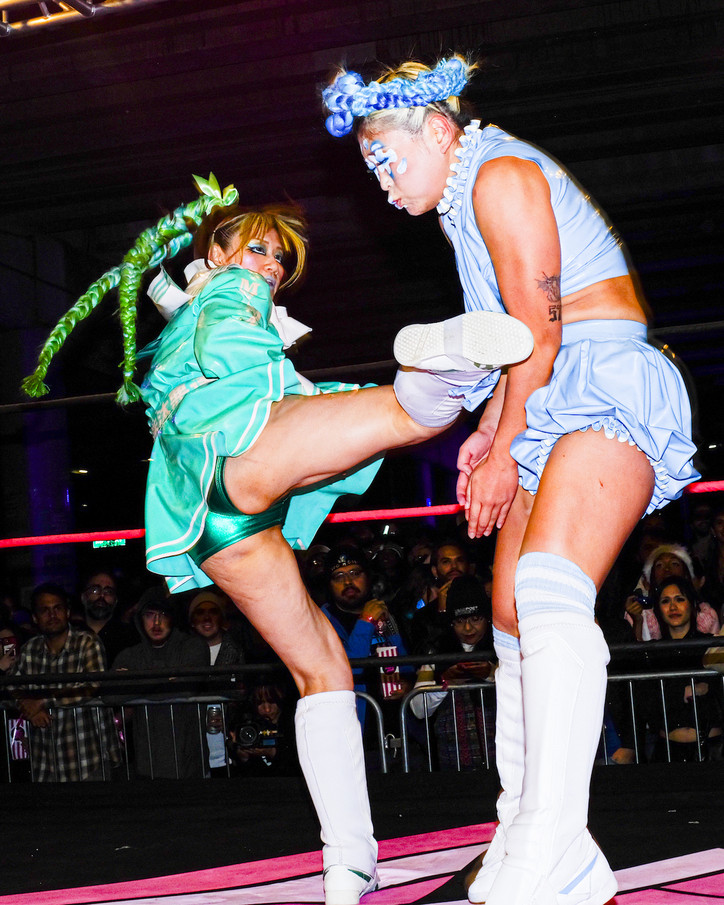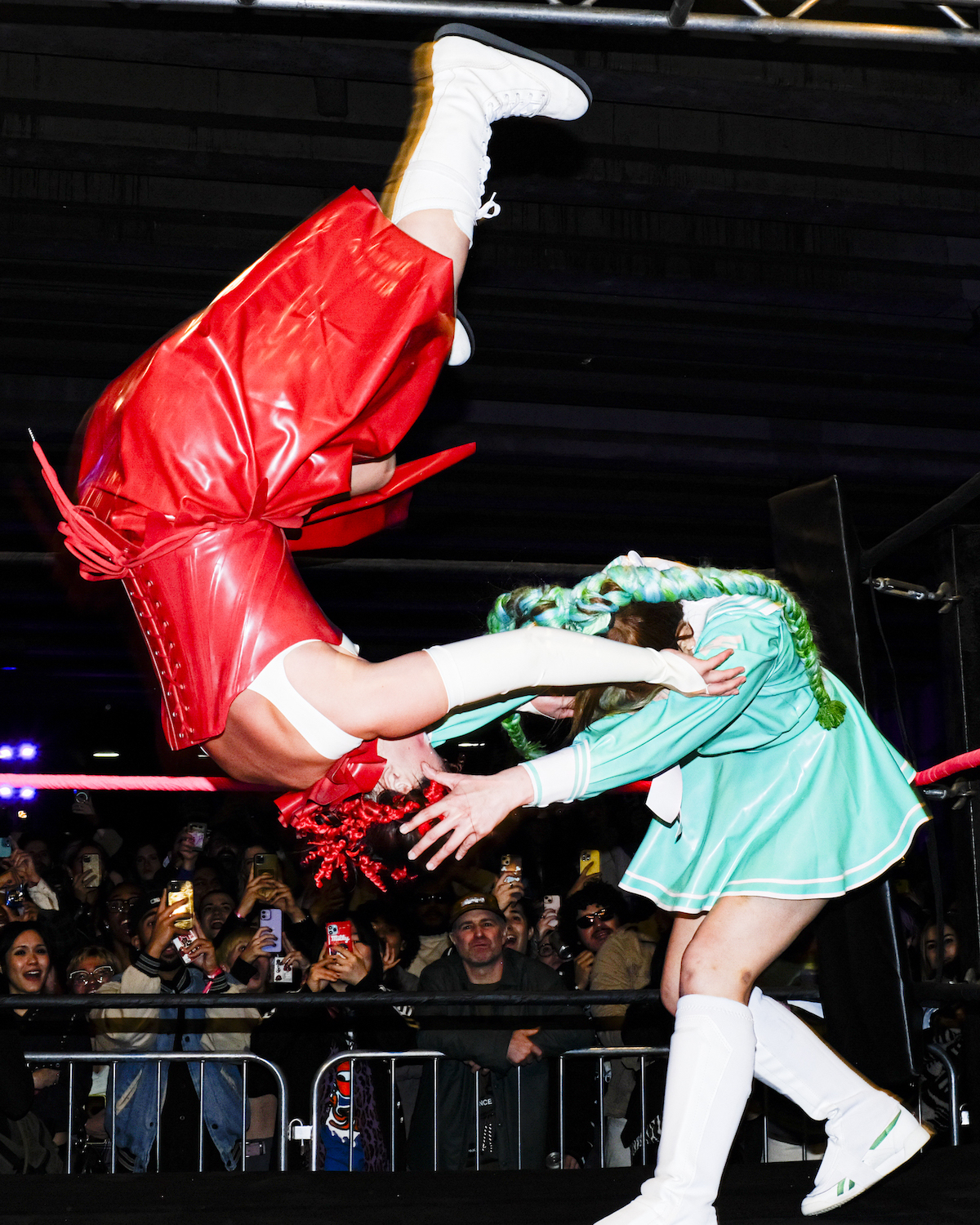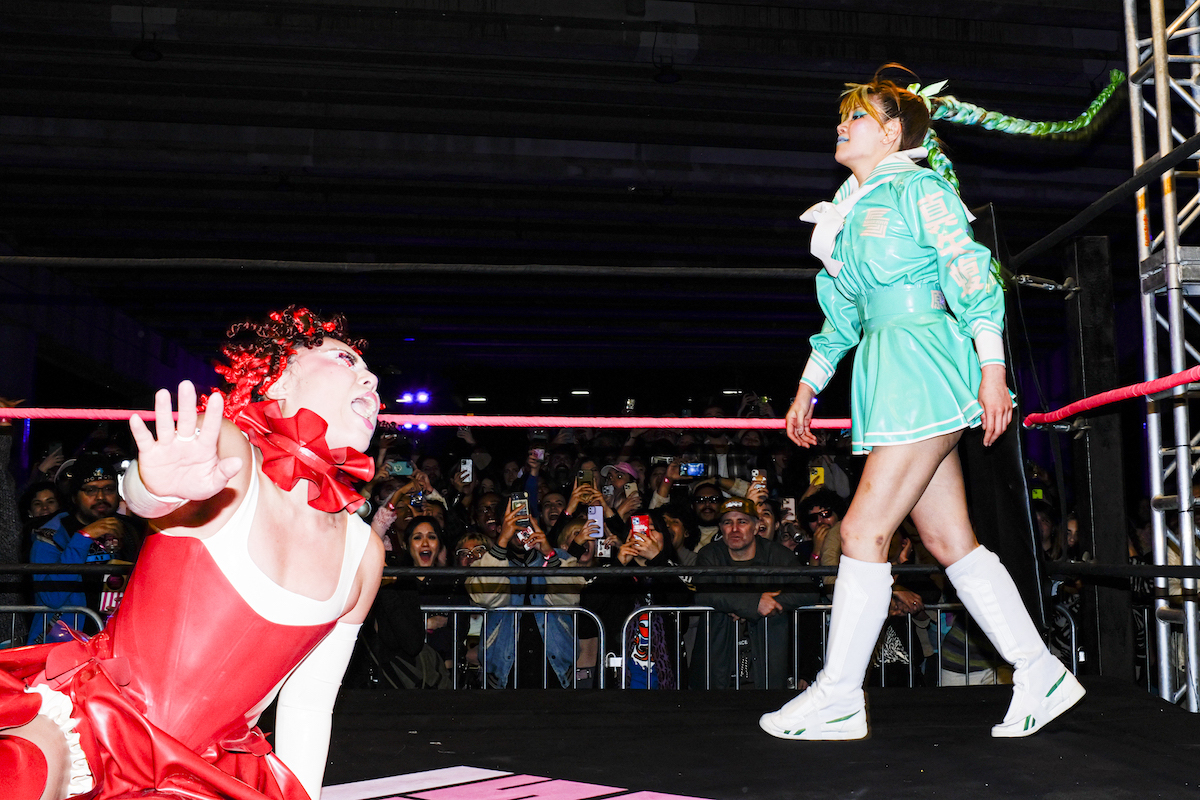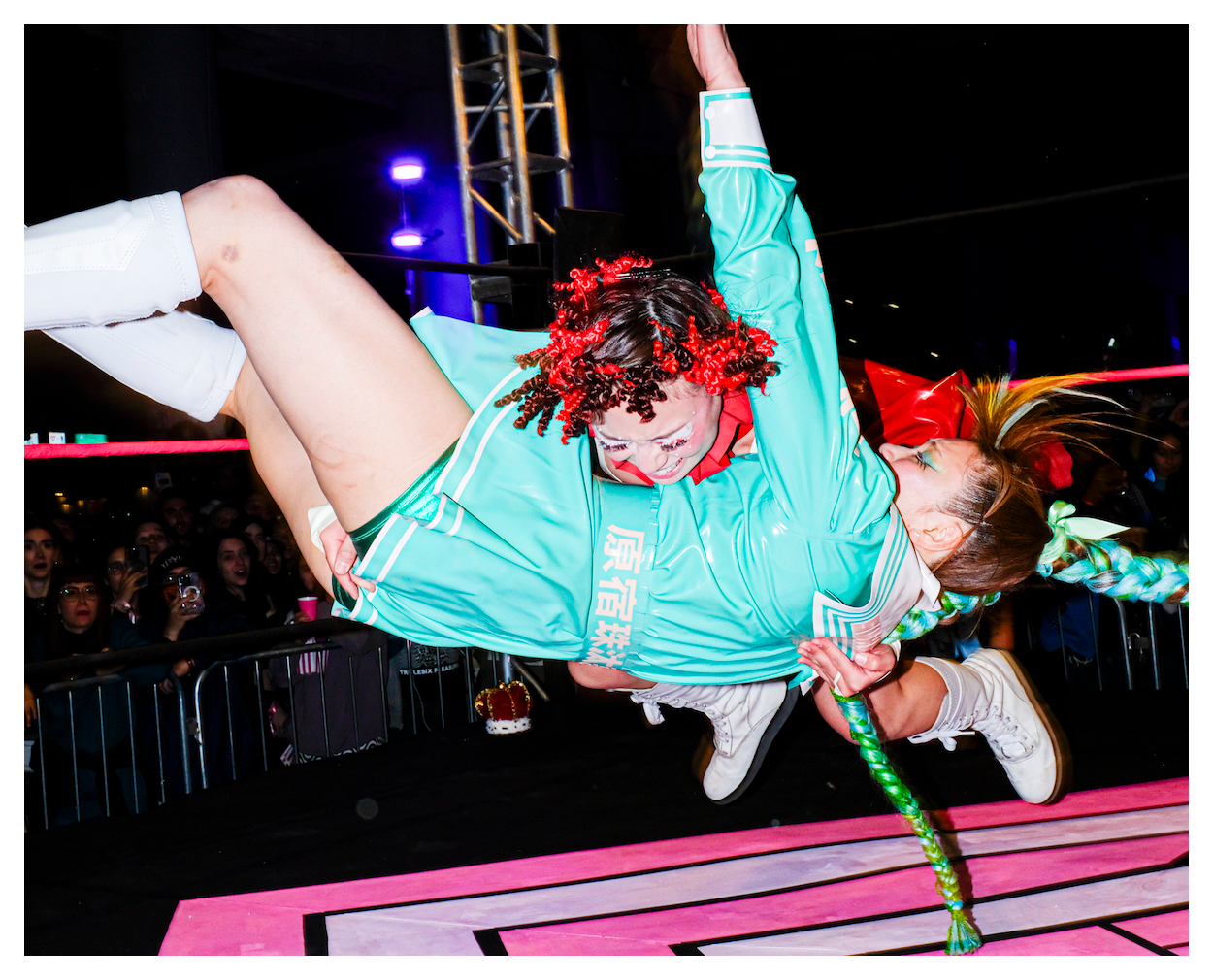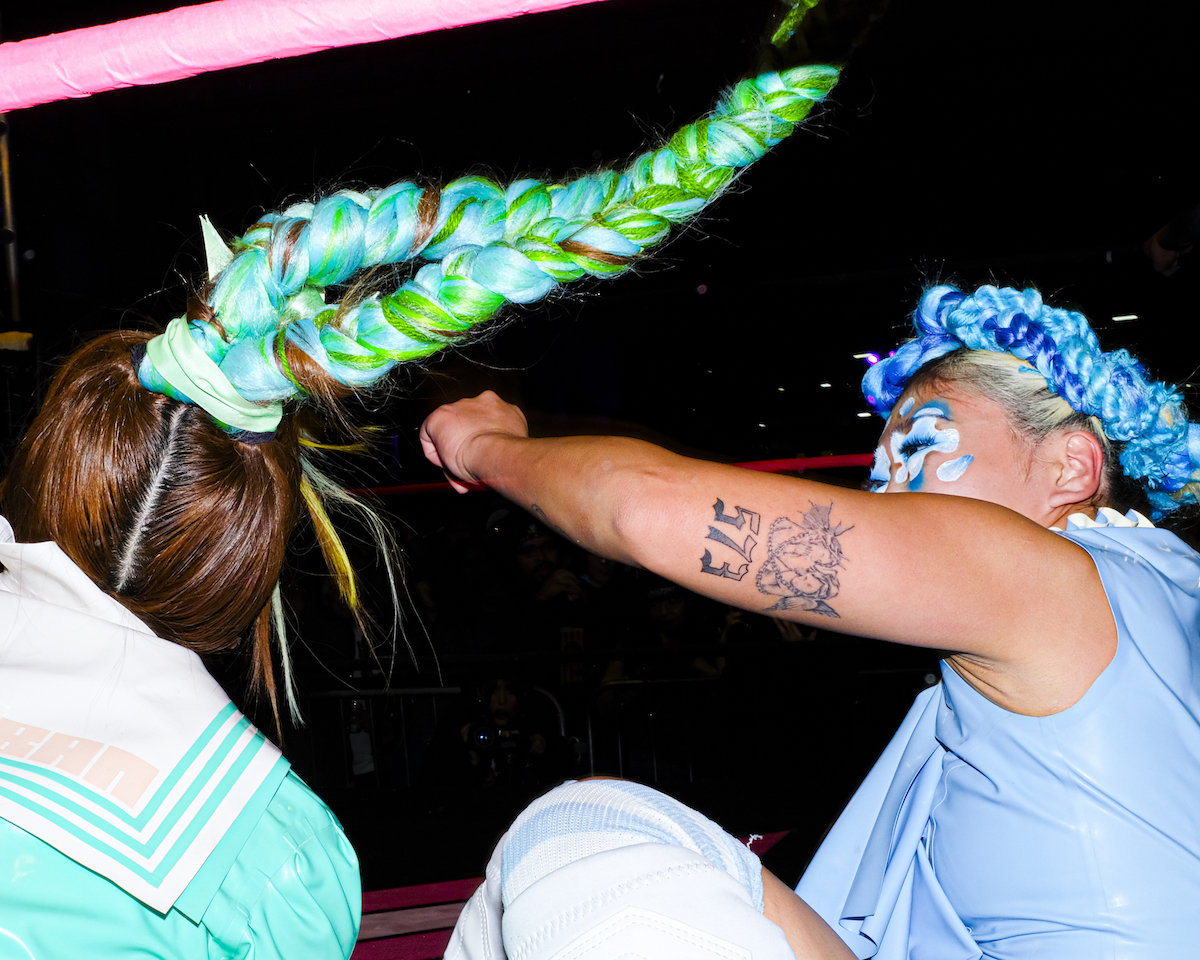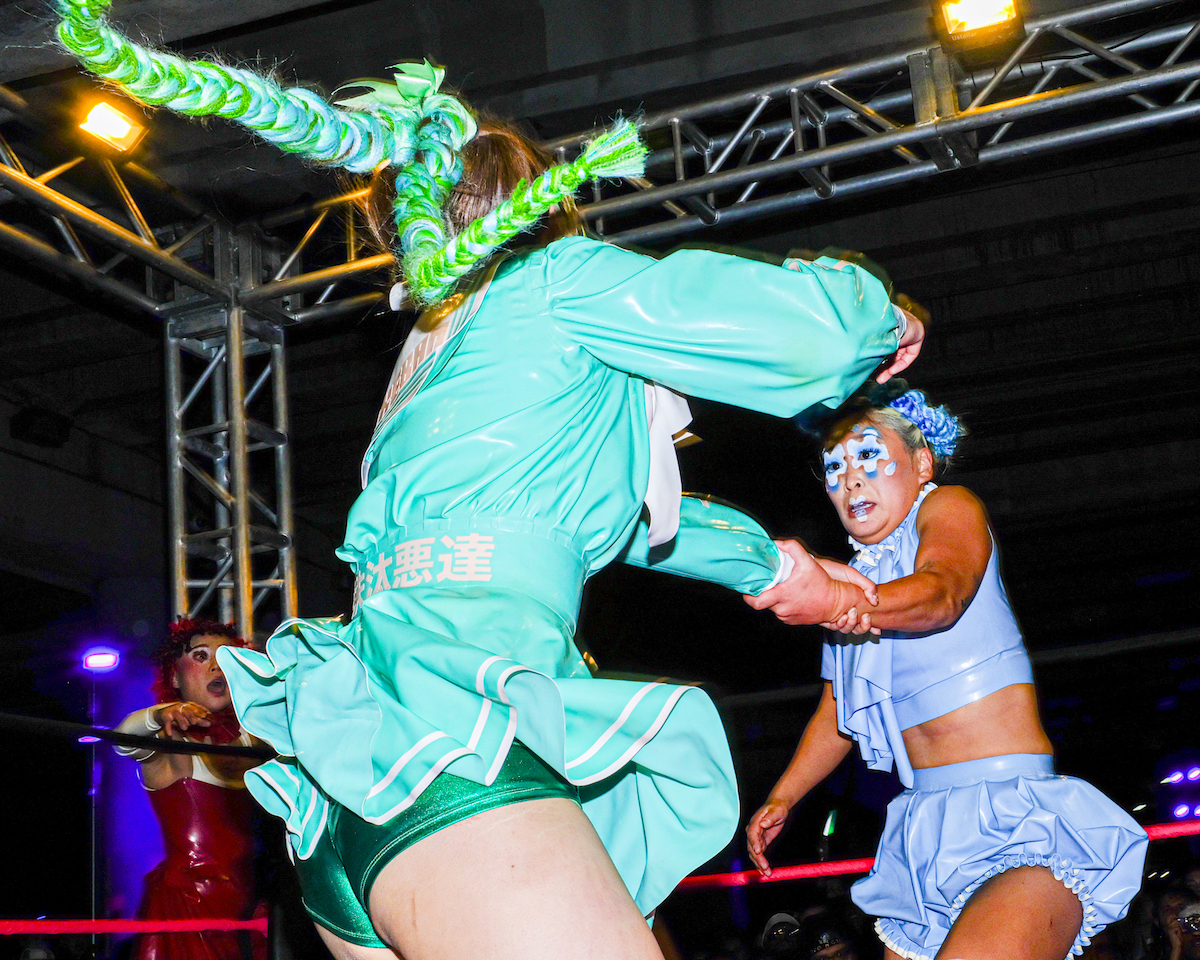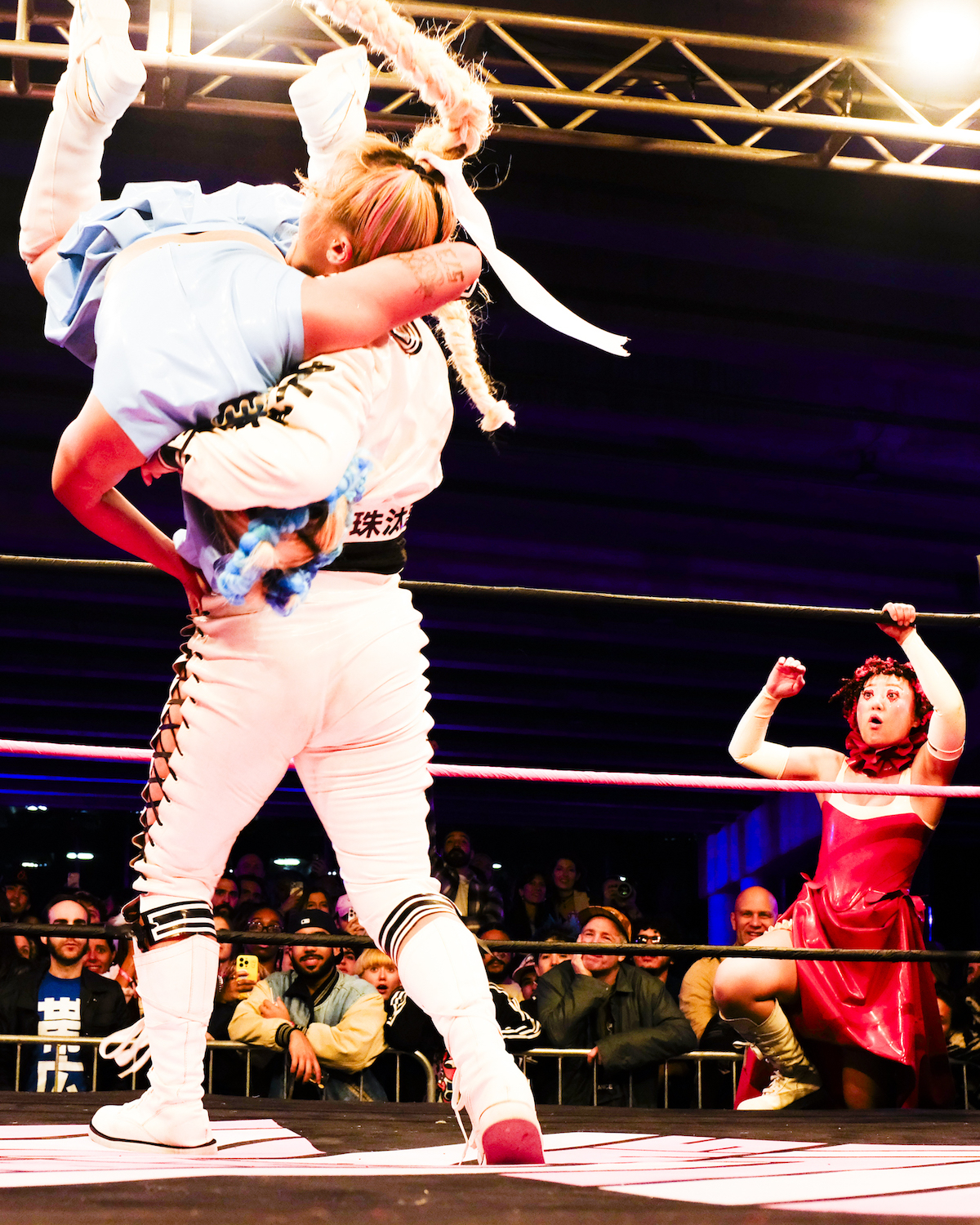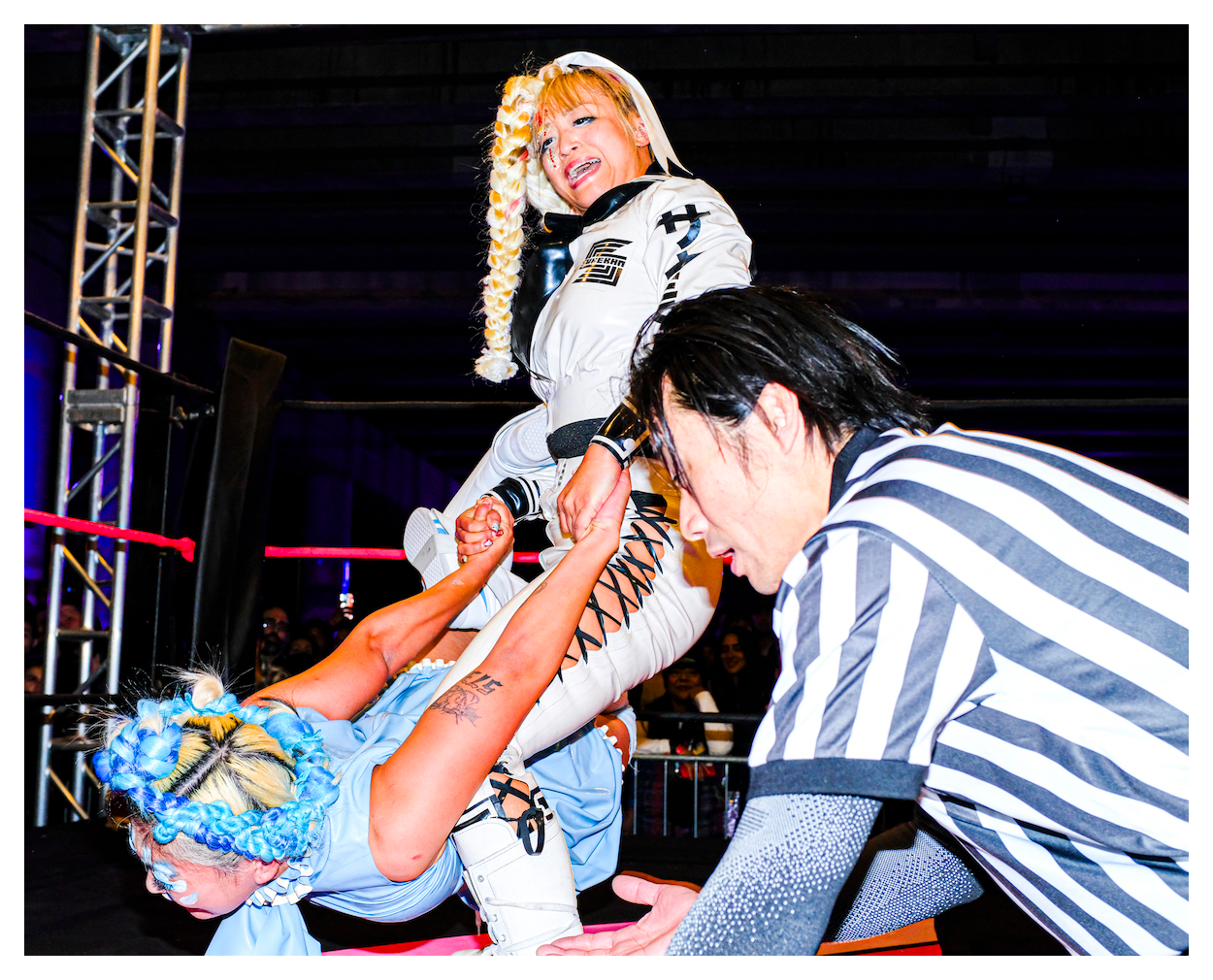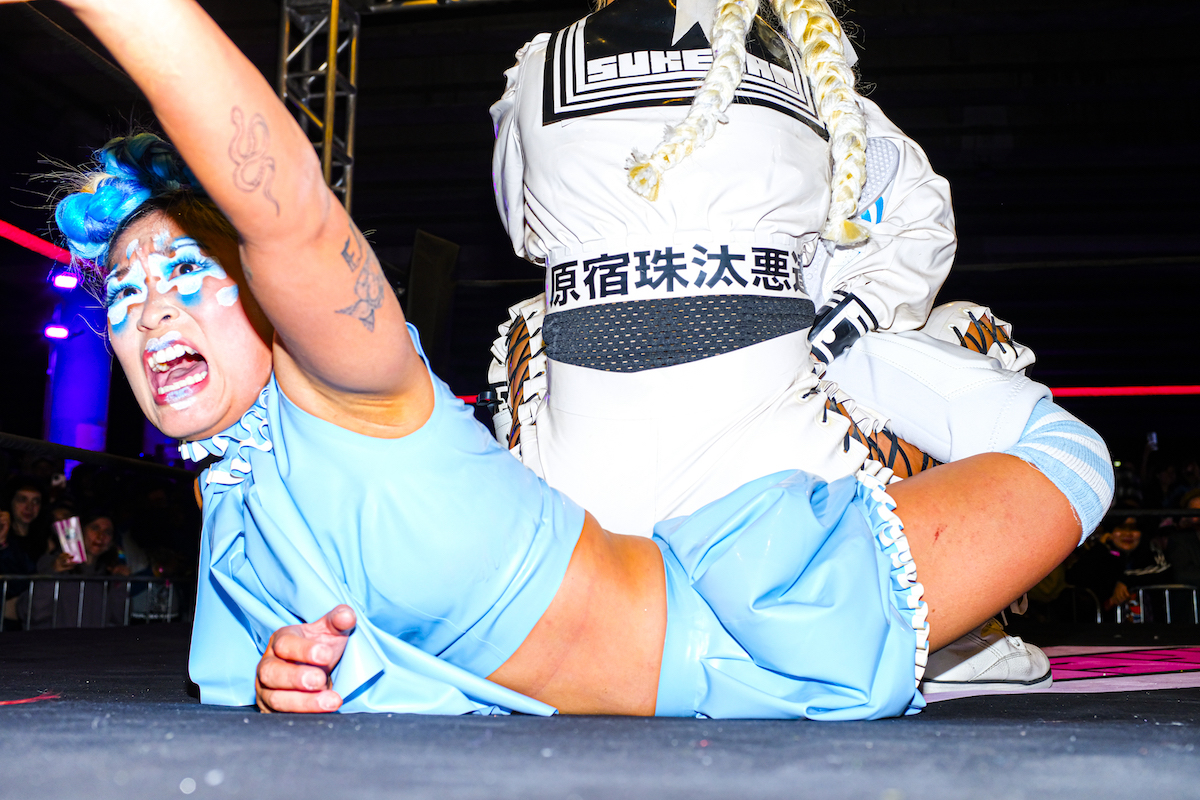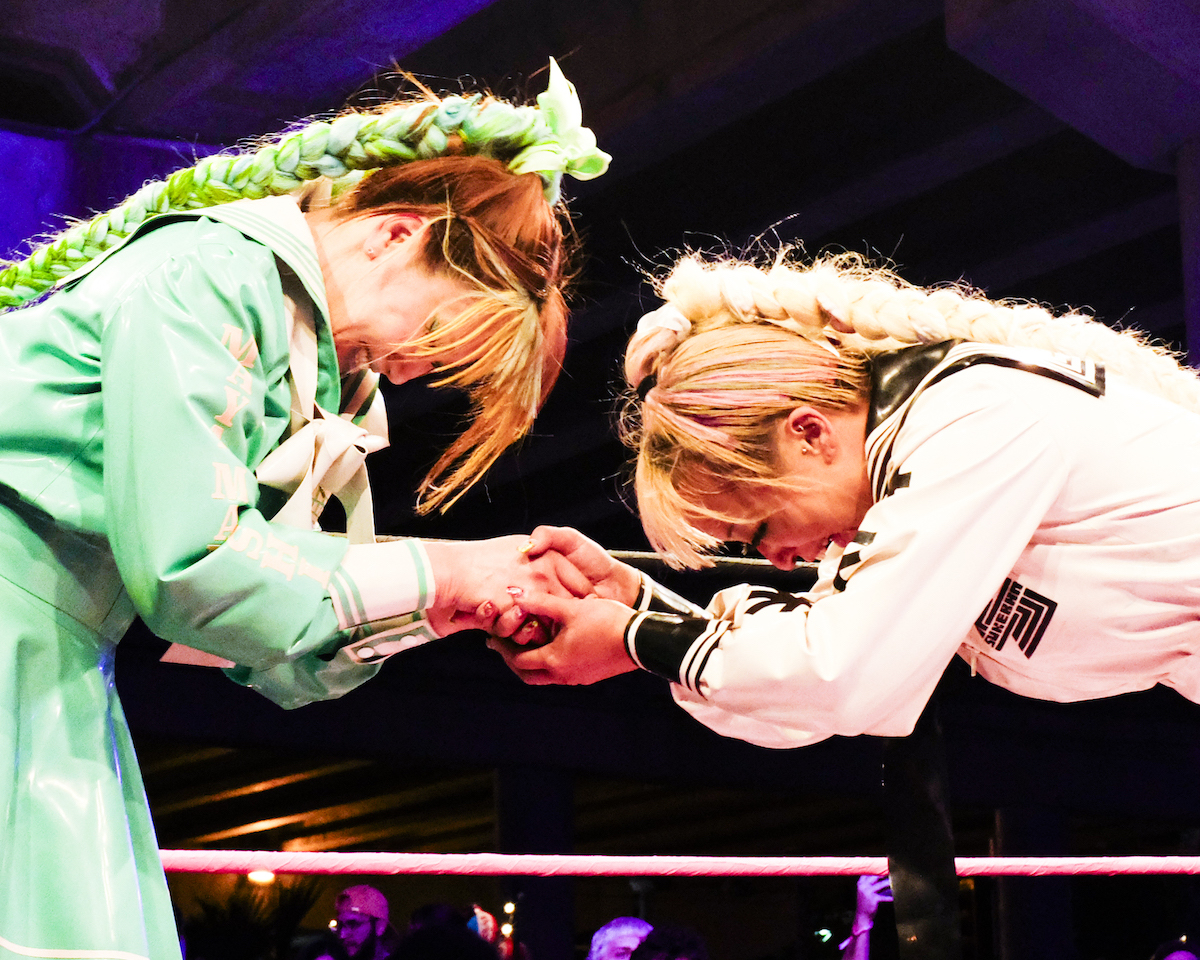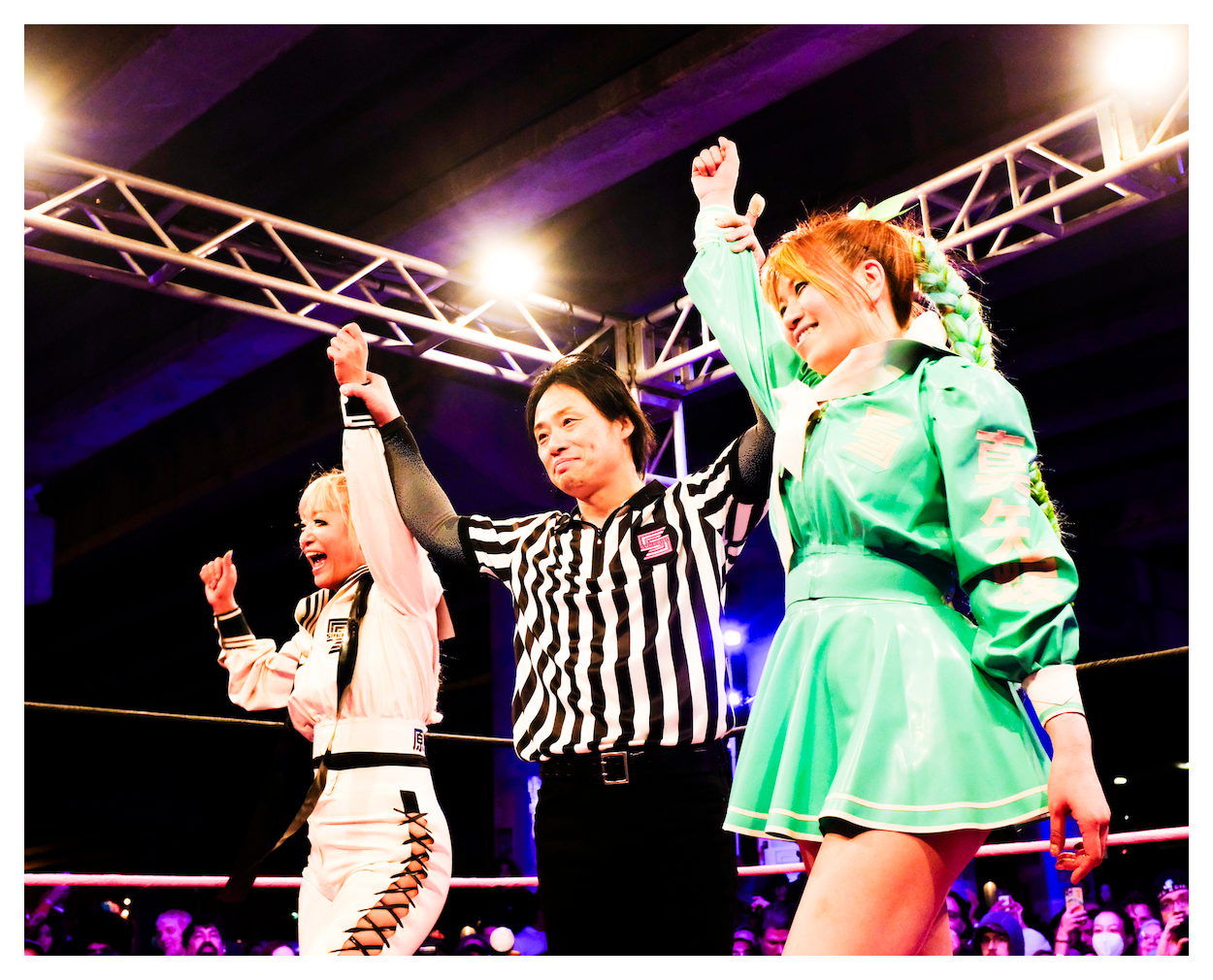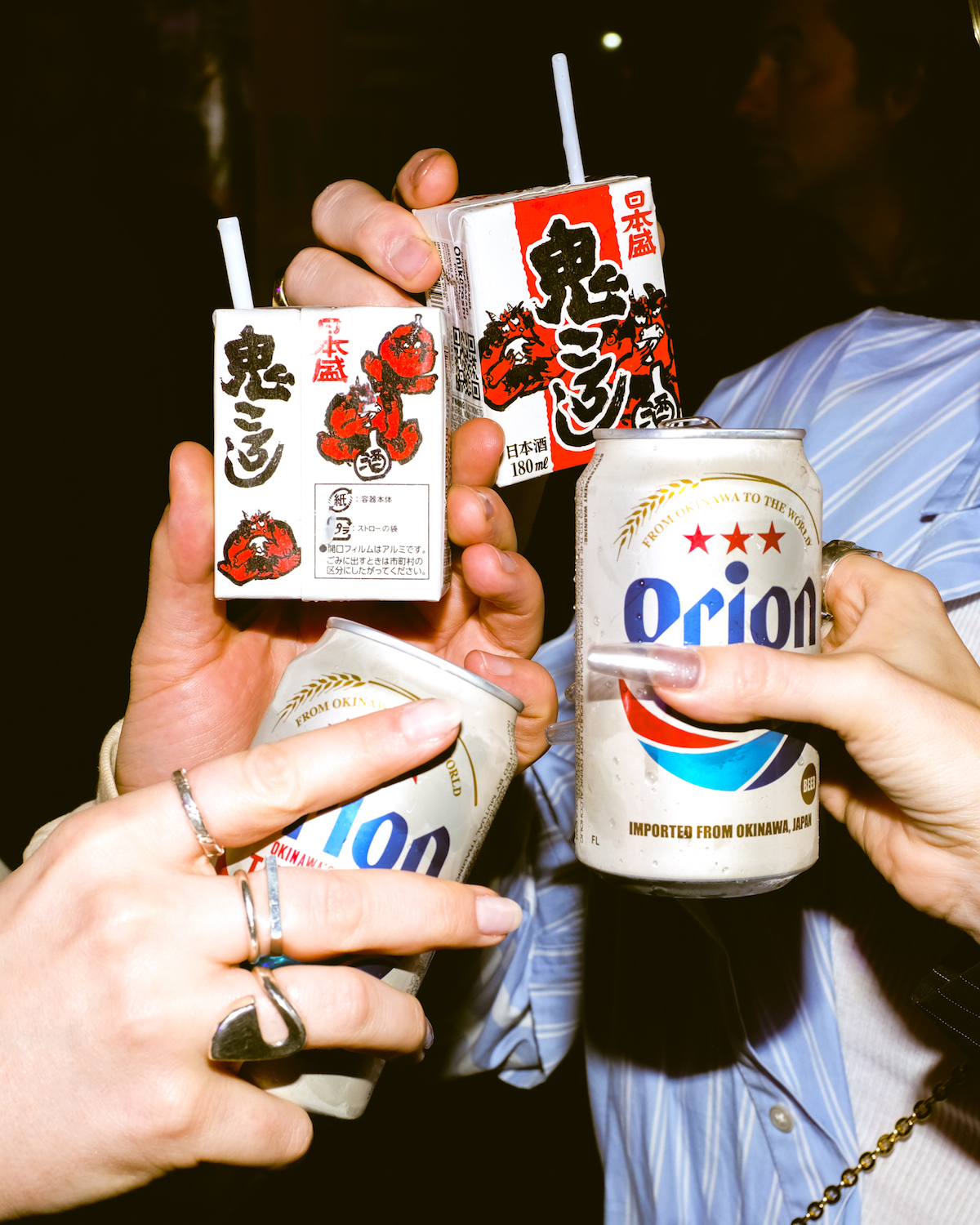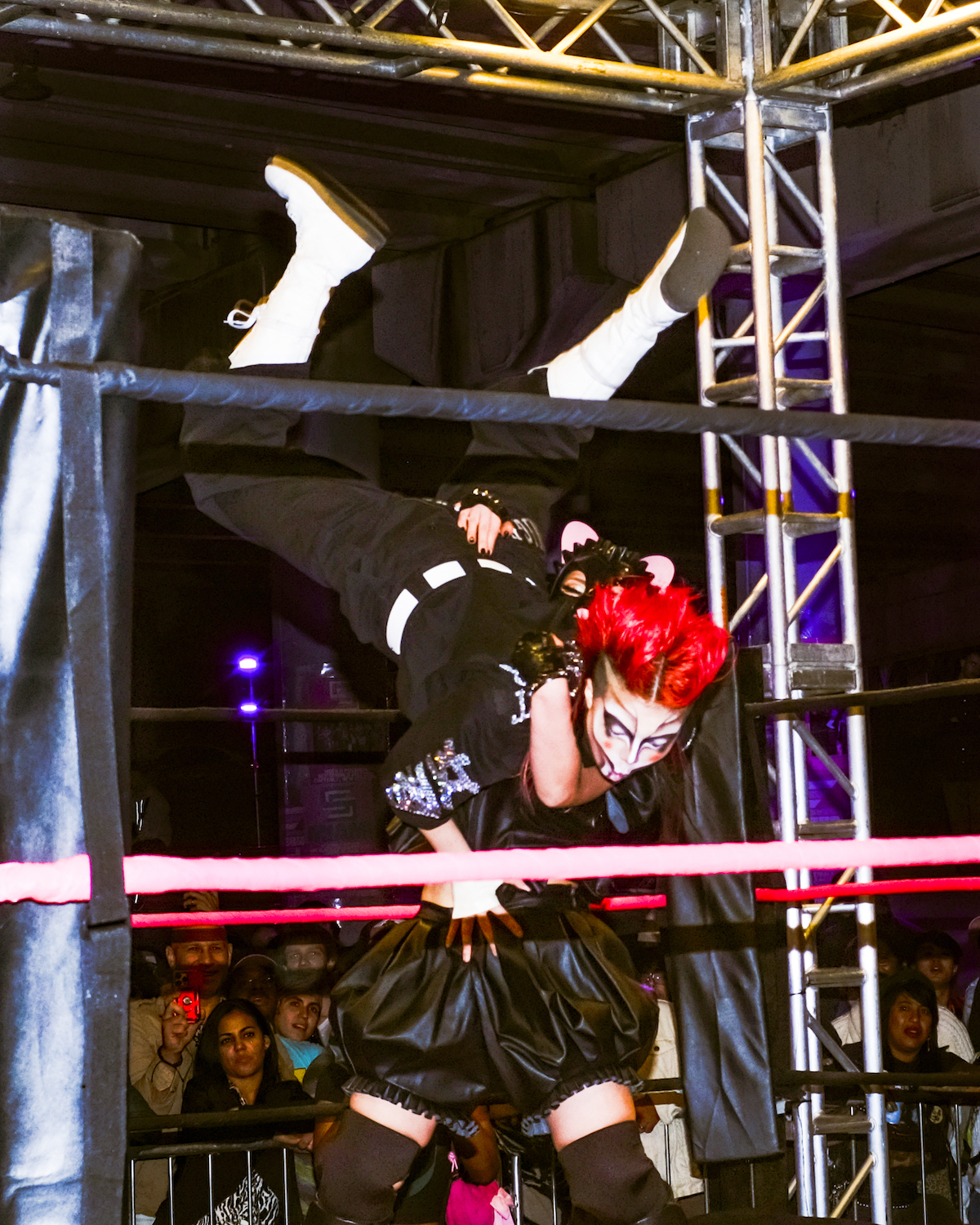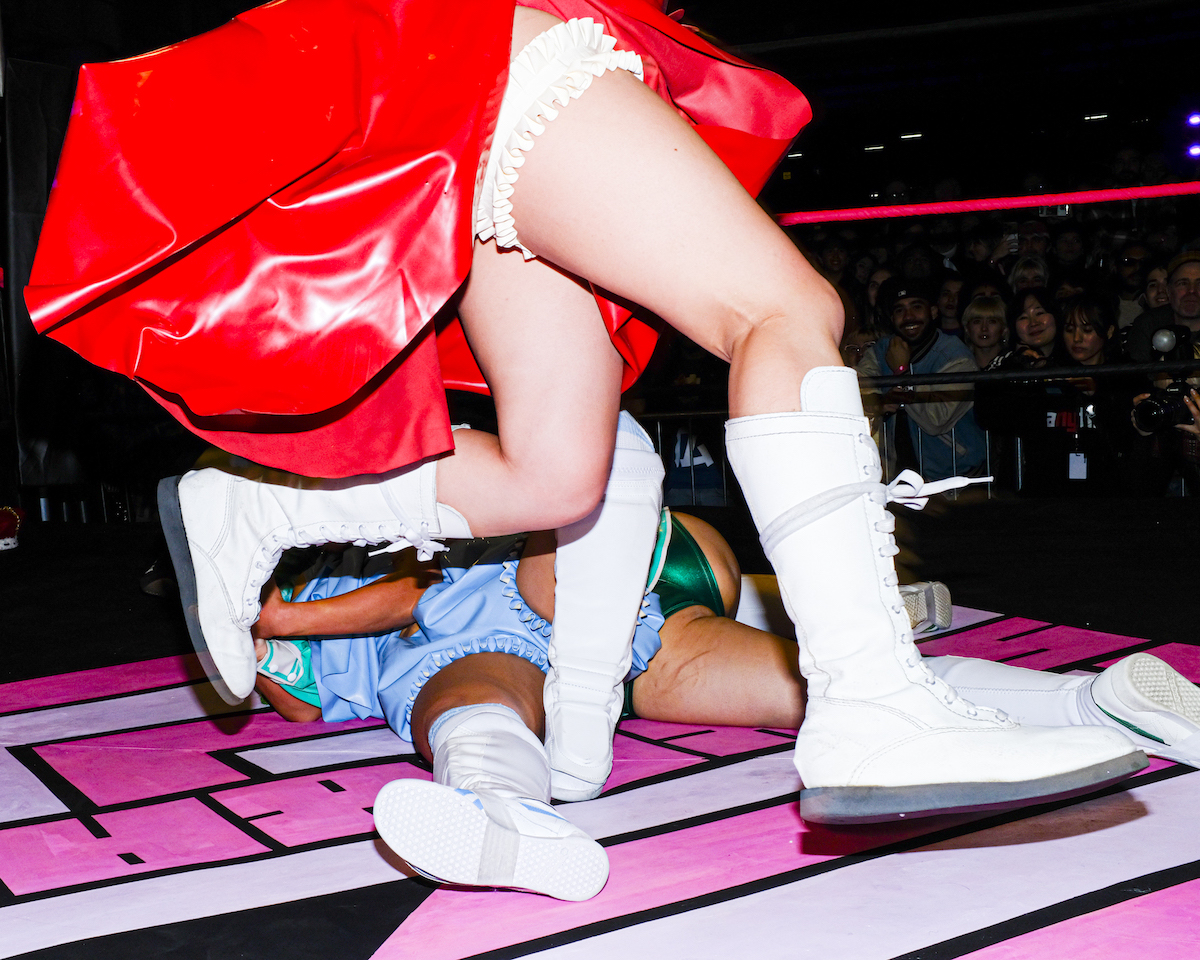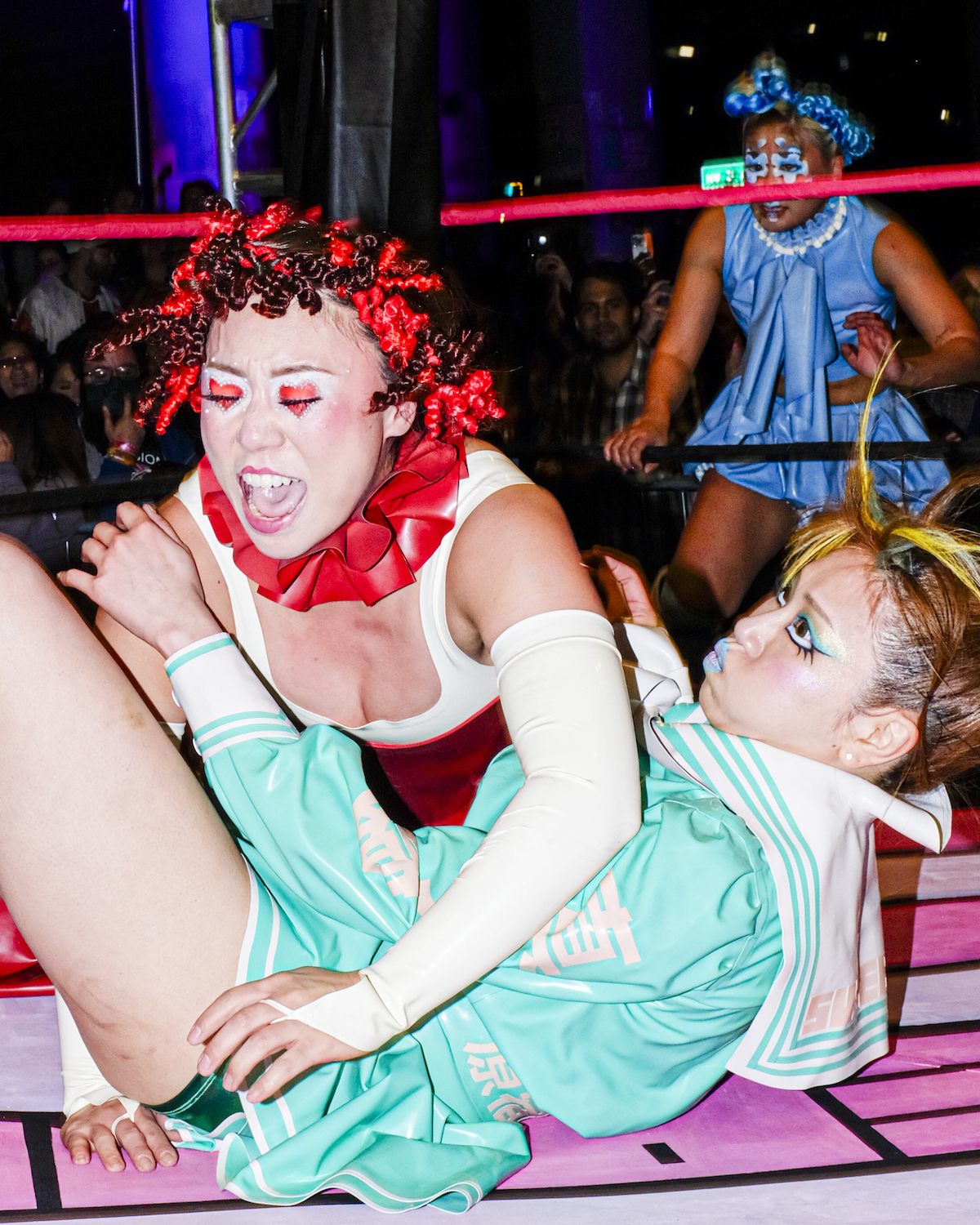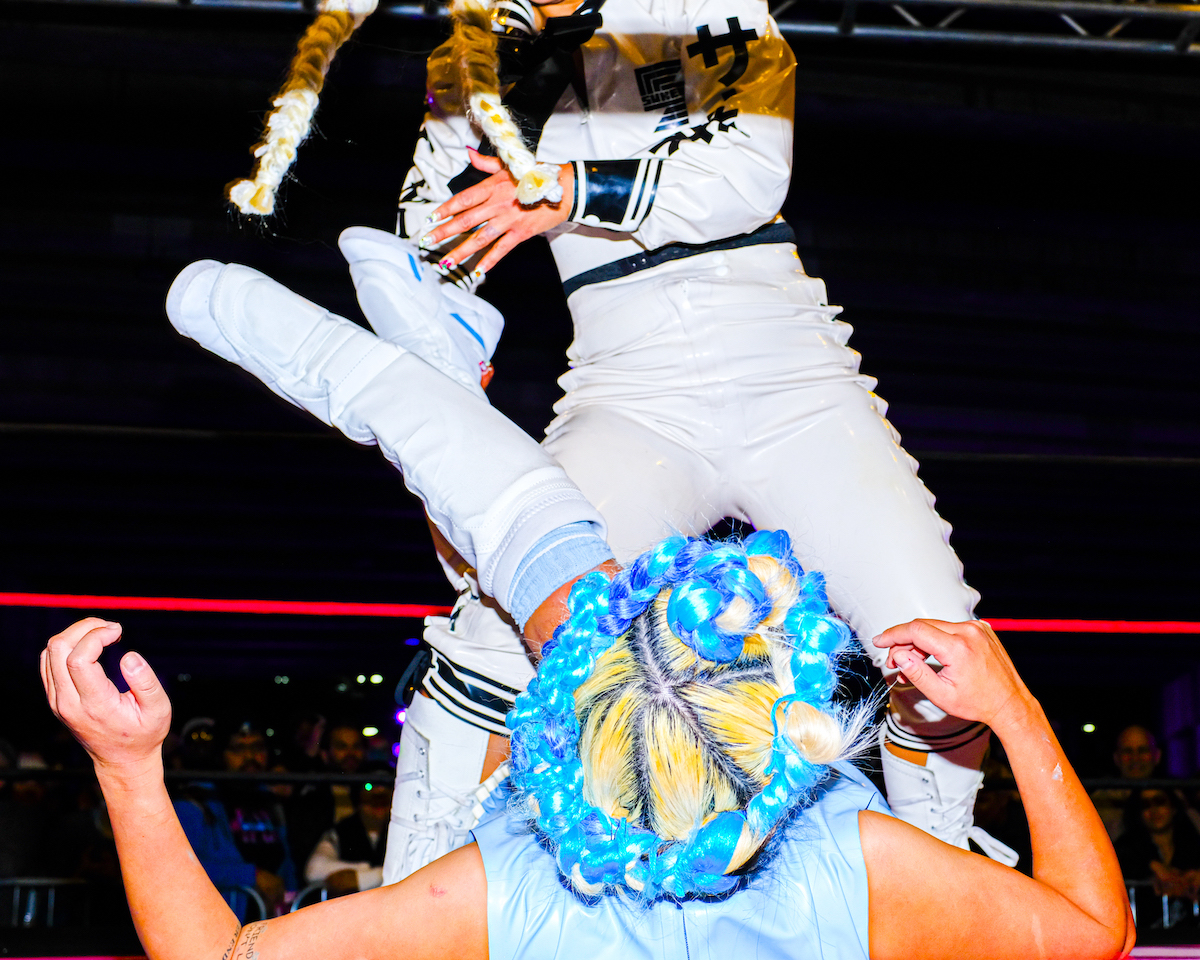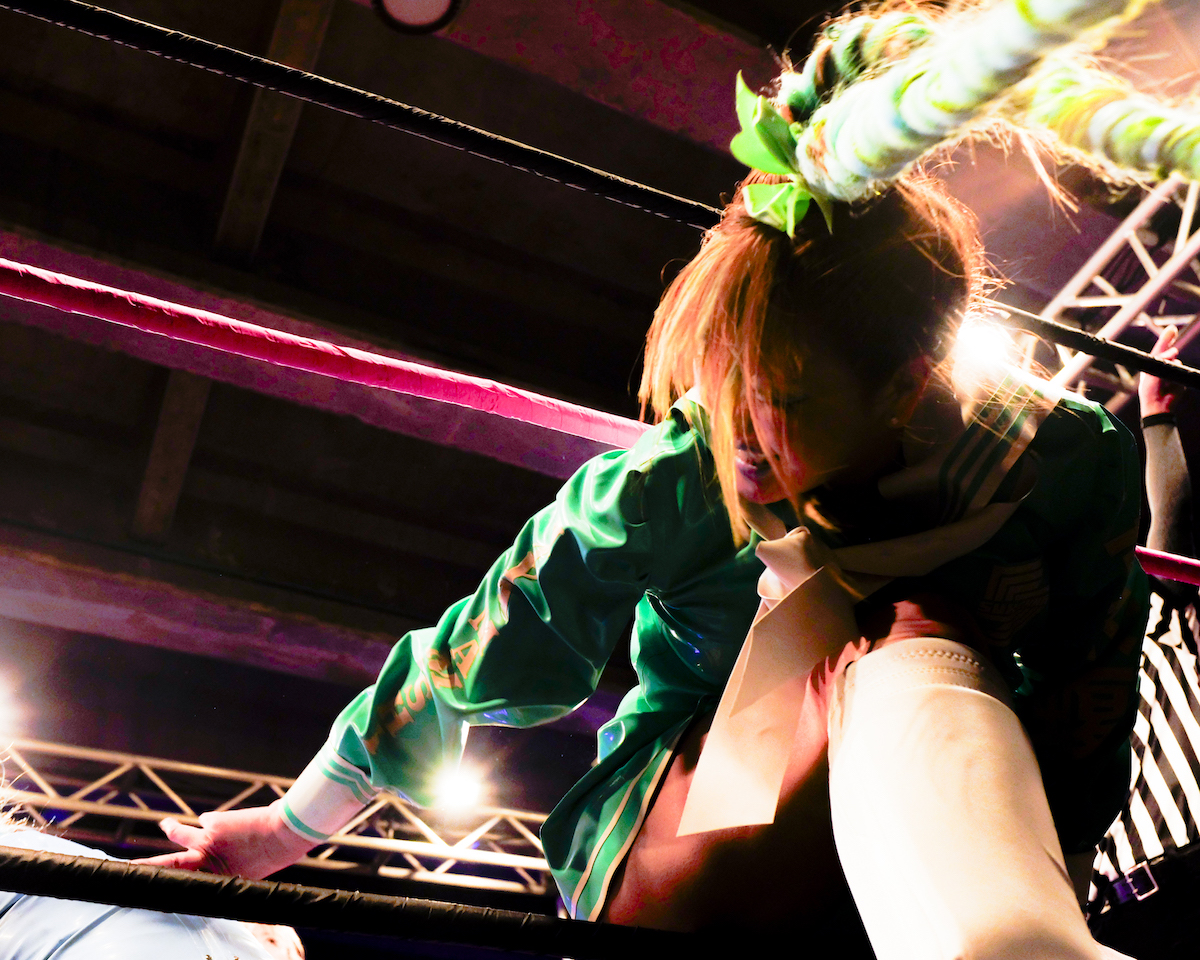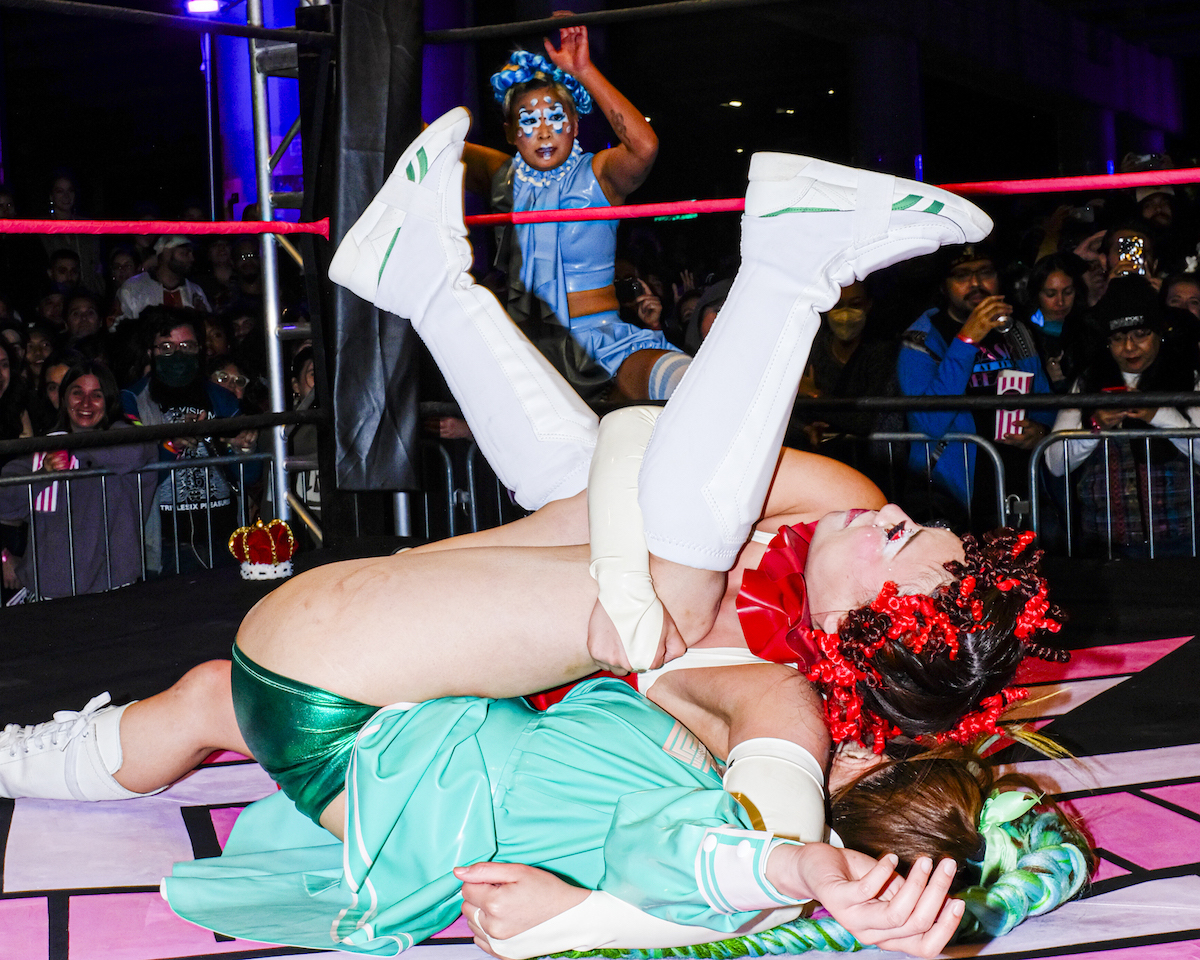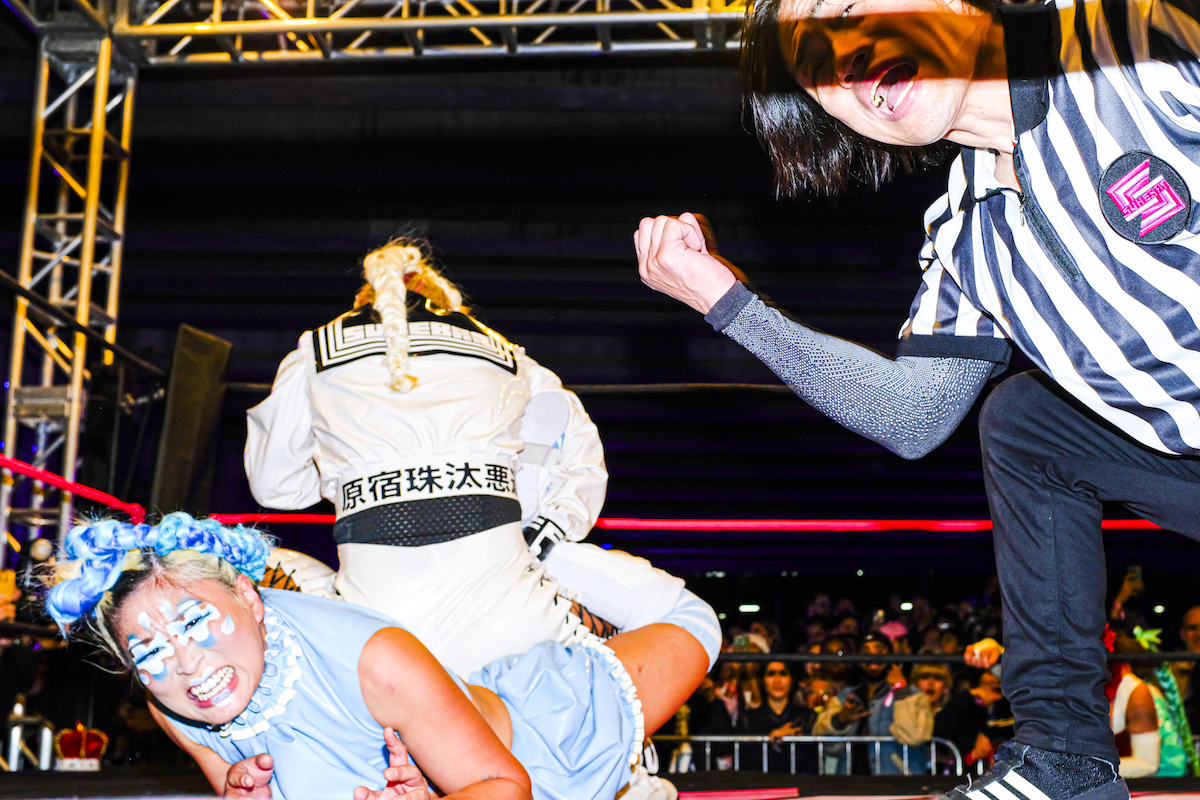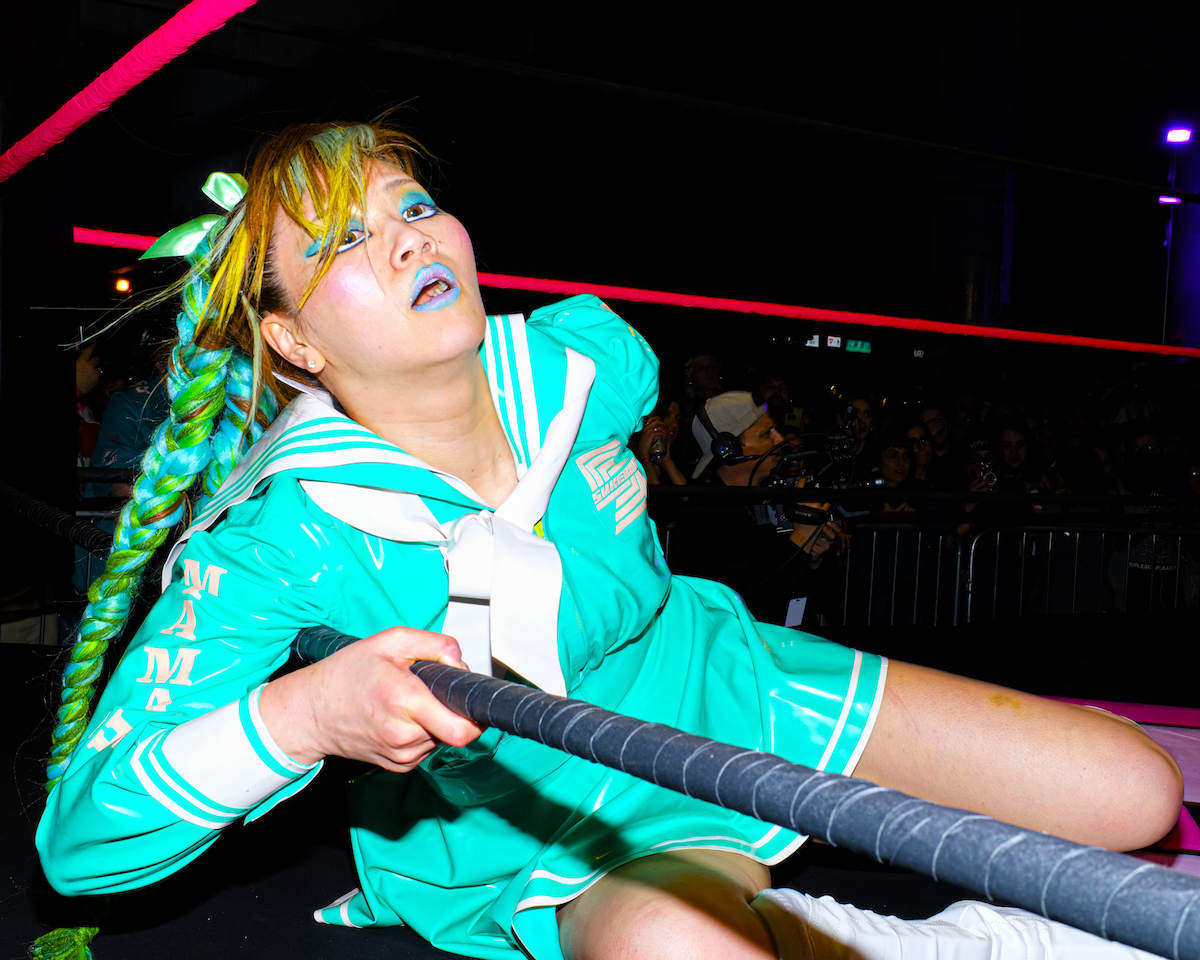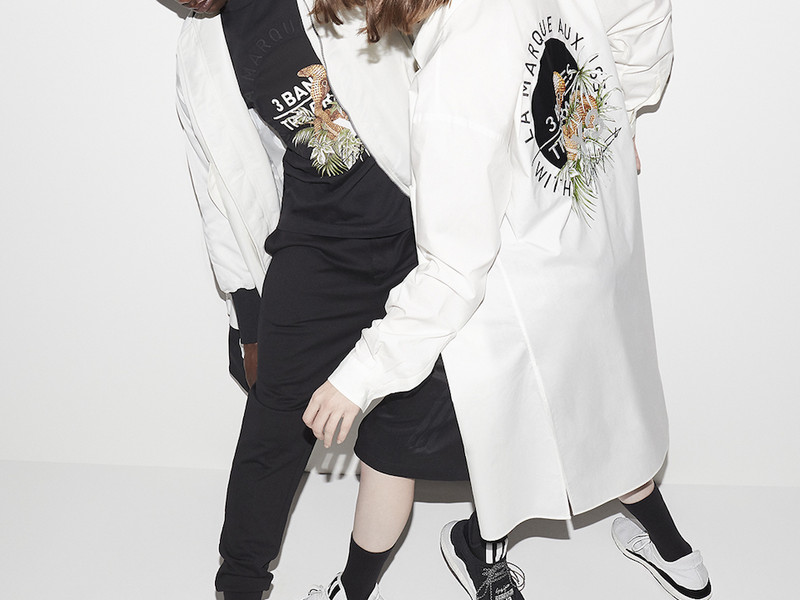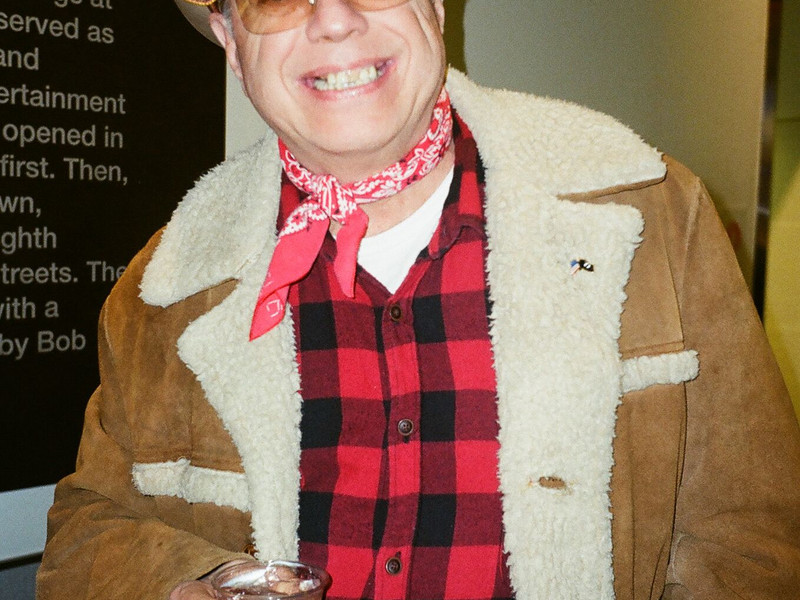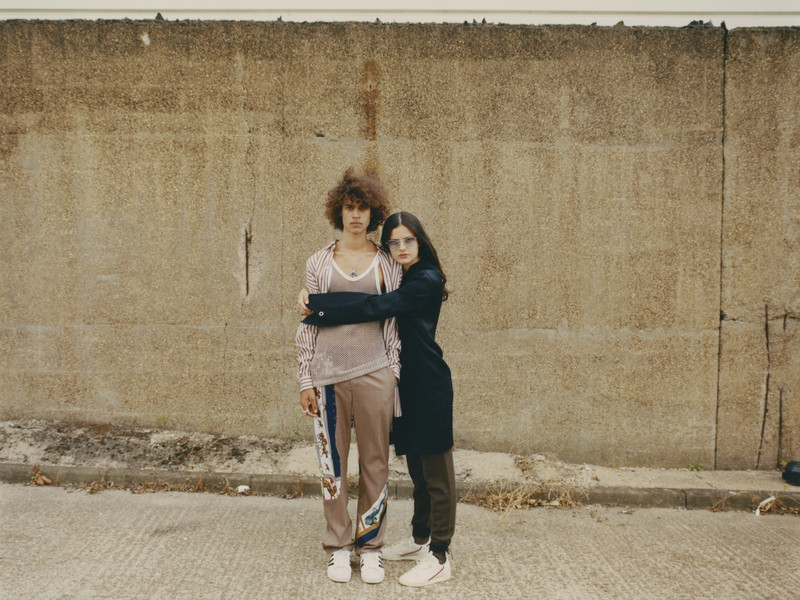Keeping the Game Going: Isabelle Harrison
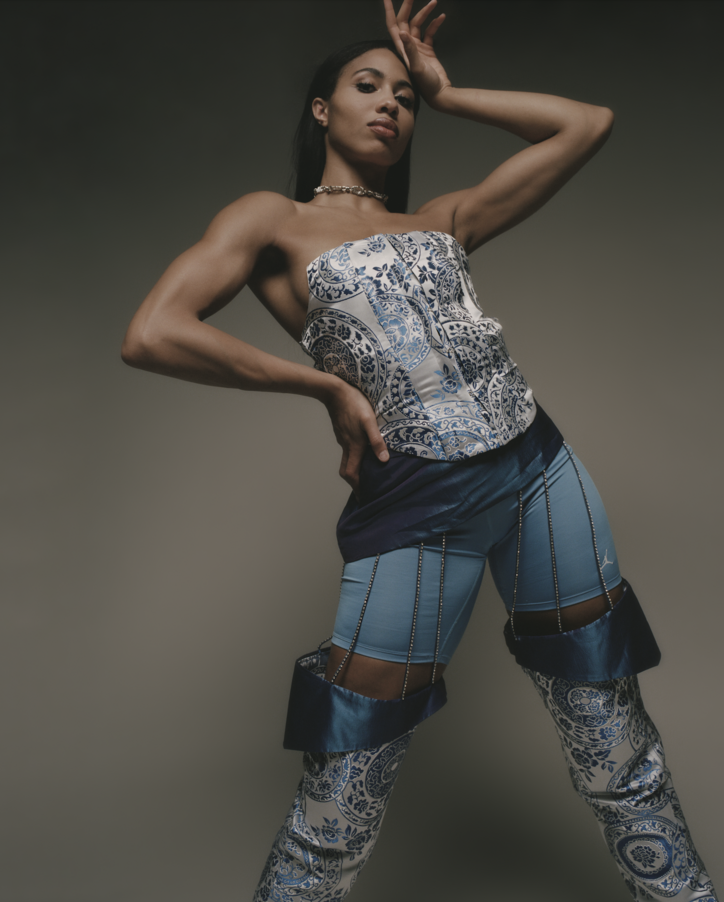
Harrison, 28, may have kept her first pair of J’s off the court, but she was always meant to play on it. As one of 12 competitive mega-jock siblings growing up in Nashville, Tennessee (many of whom went on to have college and pro careers of their own), her childhood was filled with basketball camps, running, bicycle races, push-up contests, and additional training in volleyball, track, gymnastics, and ballet. “Before I could even really remember, I was always outside,” she says. “I was a really huge tomboy. And if you know what it’s like to have older brothers, you know that they will always just want to rough you up. Being around that atmosphere, it really honestly made me as competitive as I am today.”
Her father, Dennis Harrison, once a defensive end for the Philadelphia Eagles, worked as a football coach at his alma mater, Vanderbilt University. When Isabelle would go to work with her dad, he would drop her off with the girls’ basketball team.
“Honestly, I used to think it was free babysitting,” she says with a laugh. “But I would be in there practicing. I would actually rebound for the girls, I would shoot layups with the girls. I remember the coach saying, ‘Hey, you’re really good.’” She was just six years old at the time.
“I was a really active kid, but I stayed with basketball because my older brother played in the NBA,” she says of older brother David Harrison, a former player for the Indiana Pacers. “And I was obsessed with him. Wherever he was going, I wanted to be there. When he would be in the news or stuff in Nashville I was like, he is my first hero. Before I really got into women’s basketball, I saw this first example from my family.”
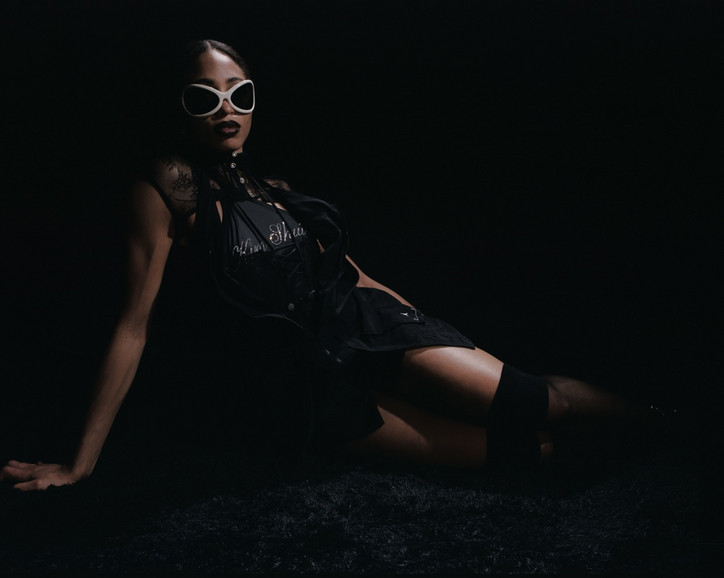
Harrison went on to play on the Lady Vols basketball team for the University of Tennessee in Knoxville, where she trained under the legendary coach Pat Summitt (who had accrued the largest number of career wins in college basketball history at the time of her retirement in 2012). In 2015, she was a first-round draft pick for the Phoenix Mercury, where she played alongside WNBA stars like Brittney Griner and Diana Taurasi. She was traded to the San Antonio Stars in 2017, and then the Wings in 2019. She is currently based in Dallas, where she lives with her dog/traveling partner/unofficial team mascot, Prince, a spunky three-and-a-half pound Yorkie from Korea.
She is close with her fellow players. “I would define family by community. Again, I’m one of 12, and I’ve always been around a lot of people; you know how they always say it takes a village to raise a family. And I would say my parents’ friends, my neighbors, my siblings’ friends, everybody played a part in raising us, and I think that’s why I’m so big on people and showing love to the ones that show love to you... I think basketball has taught me that you can have extended family,” says Harrison. “It’s not just about blood relations.”
“We’ve grown a lot since my first year in Dallas,” she says. “And I don’t know, you start to become sisters in a way. And that’s not something that happens too often in the W, so I cherish those moments every chance that I get.”
A warm, magnetic person, Harrison speaks about basketball fervently; the sport is her “passion,” and games are “doing battle.” She describes what sounds like a punishing workout schedule with cheery enthusiasm, and words like “discipline” and “dedication” fly out of her mouth with pride. “I love sports,” she says, “I’ve been around them all my life. I want to stay in sports.”
But she knows she can’t hoop forever. She says that Summitt, who passed away in 2016 after a heart wrenching diagnosis of early- onset Alzheimer’s disease, encouraged her players to focus on their education. “A lot of coaches don’t care about that,” she says. “They could be like alright, ‘student athlete’ really means ‘athlete student.’ But Pat was very much about having student athletes. She told us, like as a boss, ‘you’re dribbling one day, but what’s your next move?’ The ball stops dribbling, so make sure you have a degree.’”
Harrison says that she’s carried those thoughts throughout her basketball career, always seeking opportunities for its expansion and longevity. She took an apprenticeship for the Dallas Mavericks during their last season, learning about the business side of the NBA. She puts herself out there, sharing vlogs about everything from life in the WNBA COVID bubble to her Fenty skincare routine on YouTube, and maintaining a popular Instagram account, inherently understanding that it’s a treat for fans to get to know the person behind the talent. And now, with the Jordan deal, she’s dipped a toe into fashion, collaborating on vibrant, sexy looks for the WNBA’s All-Star Weekend orange carpet with Shui, who worked alongside Jordan Brand designers to create looks that drew on the relationship she and Harrison built over the WNBA season. One memorable blue look featured brocade pants crafted to emulate armor, a motif that spoke to Shui after seeing Harrison in action at a game, with her awe-inspiring and relentless on-court style. And their collaboration has been meaningful to Harrison as well, who called the designs Shui created both sexy and sophisticated. “It was such a statement piece,” she says, beaming. “It was a whole dream come true. I was just blown away to see it. It was such a basketball cute girl moment.”
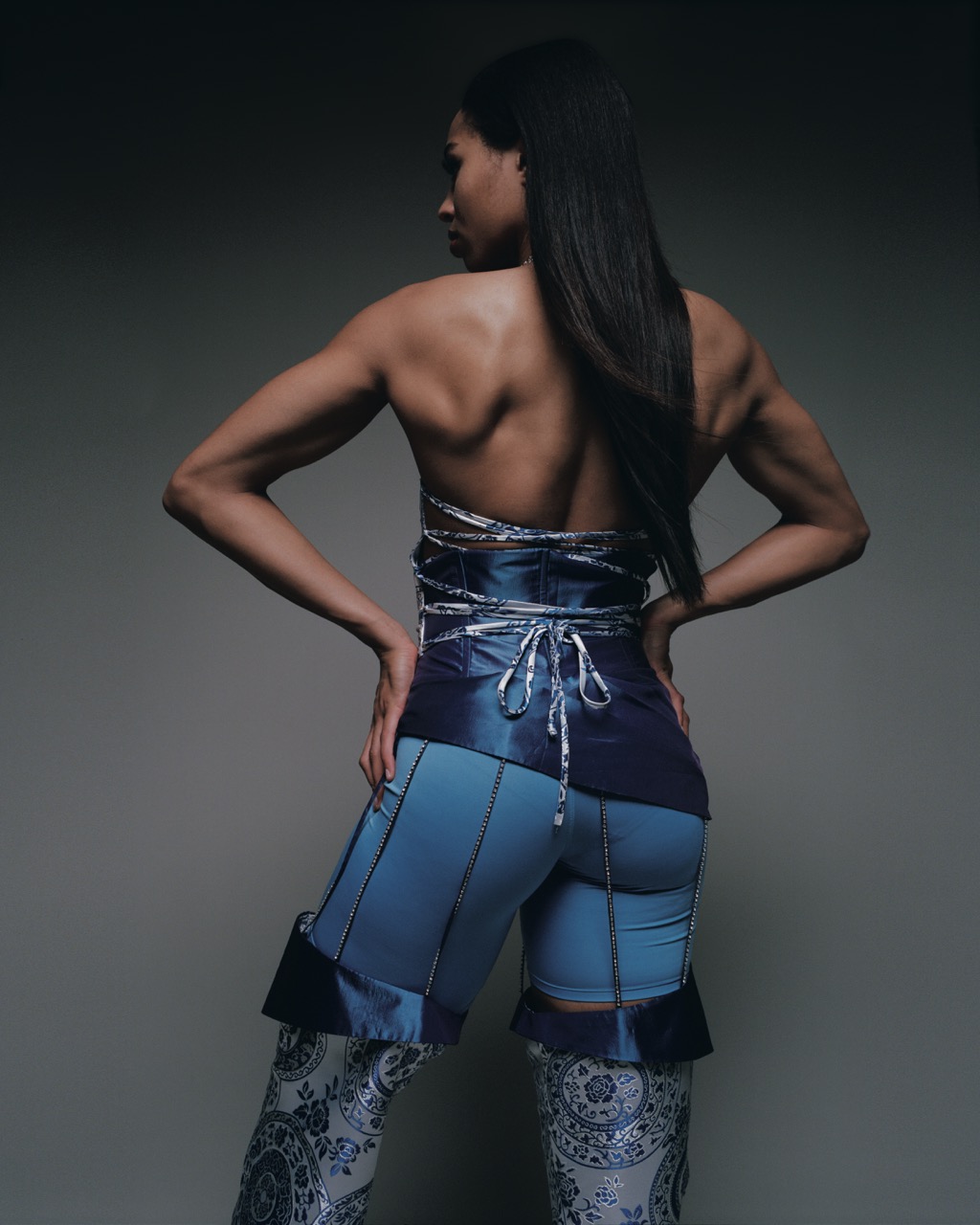
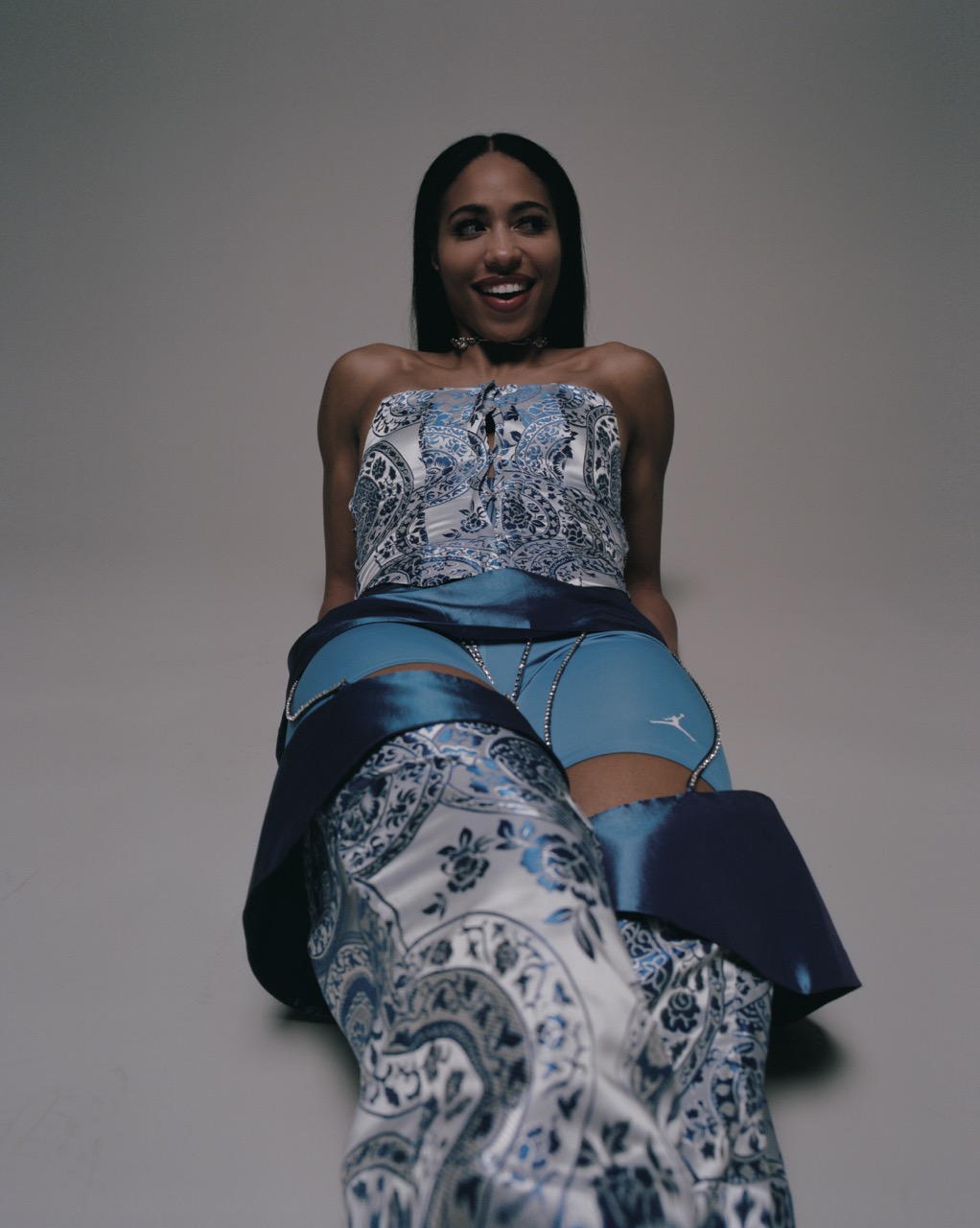
In building her relationship with Jordan Brand, Harrison has simultaneously developed a relationship and friendship with Jasmine Jordan, also known as Jordan, who works in Jordan’s sports marketing division and was responsible for the roster which Harrison was included in. She describes Jas as “uplifting,” and inspiring, saying she’s “all in all a girl’s girl, but also a boss and a mom.”
Jas also encouraged Harrison to step outside of her comfort zone while working with Shui. “I had some looks that I did with Kim and at first I didn’t know how I would be able to pull off some of them,” says Harrison. “[Then] I was talking to Jas and she was like, Izzy, this is all for you. Whatever you feel like you could rock or pull off, whatever makes you feel beautiful, that’s what we’re going to do. And when she said that to me, I don’t know, it changed my mind.”
The fellow Jordan Brand athletes constitute another sort of family. “The girls that Jas picked to have on the roster, I’ve never once had a bad encounter with any of them,” says Harrison. “They’re all such sweet, strong, beautiful women. We’re all different athletes, but we’re very much competitive. And we love what we do. And I think Jas did an amazing job, creating that. When we get together or she plans things for us in the future, she takes everything that we’re doing into account, each and every one of us, and where we’ll be. She checks in. She sets an amazing, amazing example of togetherness, community, and being a part of something greater than yourself.”
But despite the clear perks, life as a professional athlete — especially a female professional athlete — has its difficulties. WNBA players are constantly on the road; during the American off-season, many players elect to play in leagues overseas, where they can command higher salaries than in the States. At press time, Brittney Griner, Harrison’s former teammate, has been sentenced to nine years in a Russian penal colony after heading there to play, all because Russian authorities found a tiny amount of cannabis oil in her bag. An Olympic champion, Griner has played in the WNBA since 2013, and for UMMC Ekaterinburg in the Russian Premier League for nearly as long. As of this writing, negotiations over Griner’s release are reportedly under way between the US and Russian governments.
“For her to be in the country that she’s played in for so long, and to be in this position, where she hasn’t talked to her wife and her family hasn’t seen her, is insane,” says Harrison. “I really can’t imagine what she’s going through, but I think it speaks to why she had to go over there in the first place, and it was to get equal pay for her talent and who she is as a player.”
“It takes a lot to be over there for that long, and then have to come back and do this season.” She says, “And we’re not from there, so we can get in predicaments overseas. I hope she gets home very, very, very, very soon.”
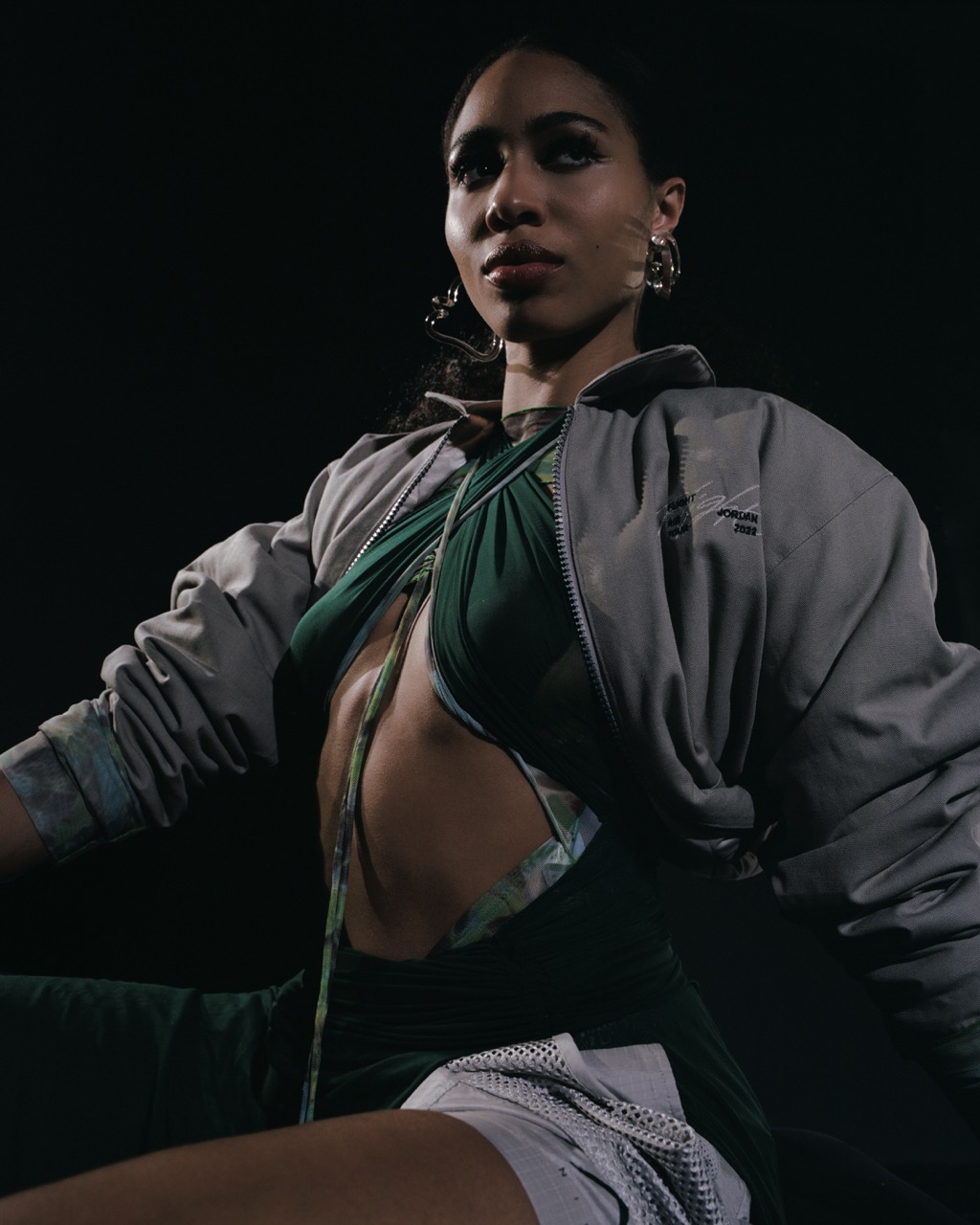
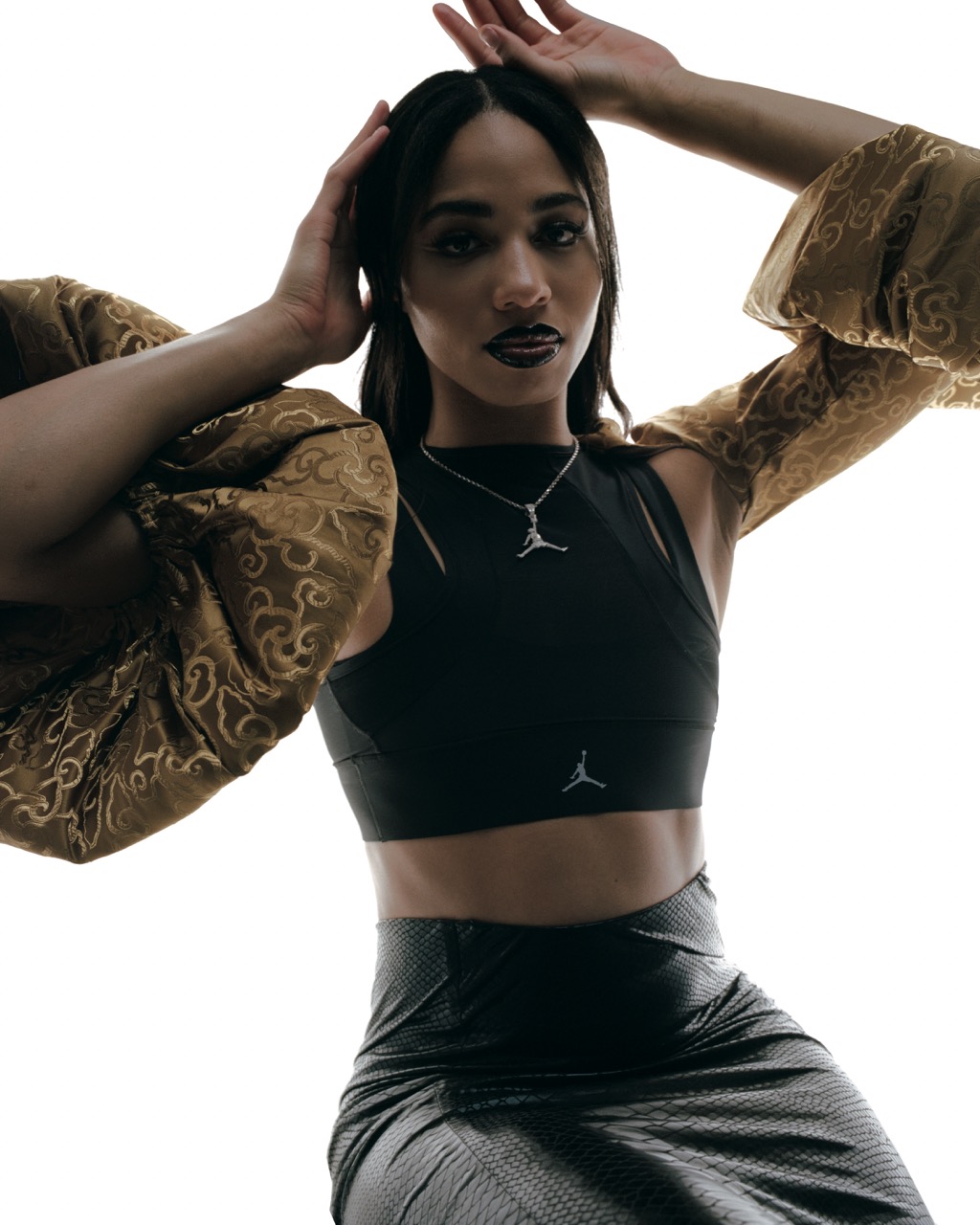
The personal cost can be heavy; Harrison says she was “miserable” with homesickness during her first overseas season in Poland. She got Prince during her second season abroad to help with loneliness, saying he “keeps her balanced” during painful times spent far away from family. After years spent surrounded by her many siblings, it was difficult to adjust to constant travel, and to so much time alone without friendly, familiar faces (she now has a sister who lives with her kids in Dallas, giving Harrison a little taste of being home in Tennessee).
But in addition to the risks that players face abroad — especially when playing in nations where they are met with outward racism and homophobia — the travel creates a catch-22 business-wise. As Harrison describes it, if you’re off playing overseas for months at a time, you lose out on sponsorship deals back home.
“That’s why I always say representation is so important,” she says. “I know people don’t want to believe that, but I can do more than dribble a basketball. I think it’s important to be multifaceted, and the women in this league are all so different. We don’t all fit in one box, and I love that because it lets you get to know a different type of basketball player. And it lets the audience see something that they’re not really used to seeing.”
“So if we’re not in the spaces to promote ourselves, market ourselves,” she continues, “people miss out on that.”
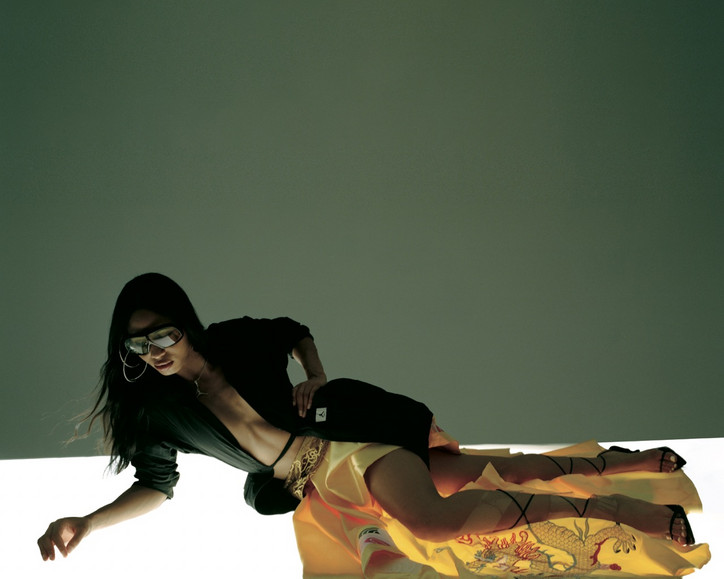
Harrison has been smart about promoting herself, opening herself up to new opportunities, and she wants the league to elevate her fellow players — especially those who face revolting backlash for their lack of feminine gender presentation. She says that men who give her friends in the league crap for being “tomboyish” are “honestly kind of jealous, because [they] can’t do what we can do, and [they] don’t look as good as us.”
“I could imagine the amount of growth we would have in our reach if we gave players an equal opportunity to even tell their stories,” she says, citing how her own appearance in an ESPN documentary gave her following a big boost. “I’ve had so many new people follow me off of that. But they would not have known if we didn’t create projects like this. And I hope this is something that they do every year for new players, because I feel like our fans deserve it. Our audience deserves to not only see us on the TV screen, or on League Pass, but to see projects that we’re involved with. That creates a community and a fan base. So I hope we have more inclusion for all players in the league.”
Harrison has a bird’s eye view of the future of her career and the league. But for now, she’s playing, happily and with deserved pride. She didn’t go abroad this year, and was able to settle into life in Dallas. Prince keeps her on a schedule. She gets to hoop in Jordans.
